Past Events
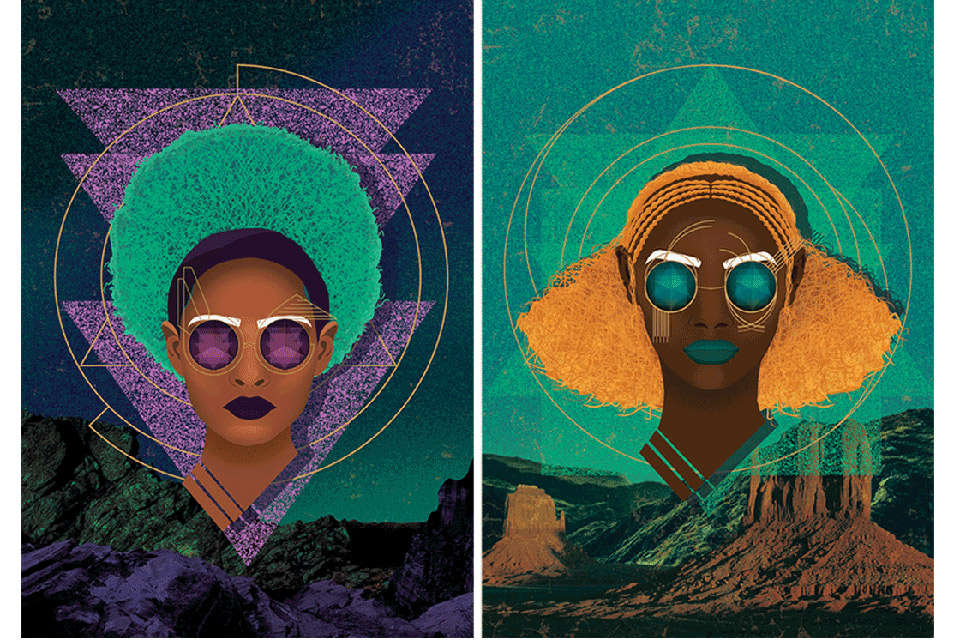
Missed an event? Subscribe to our YouTube channel to watch recordings of a large selection of past events, and be notified when new recordings are posted.
Previous Events
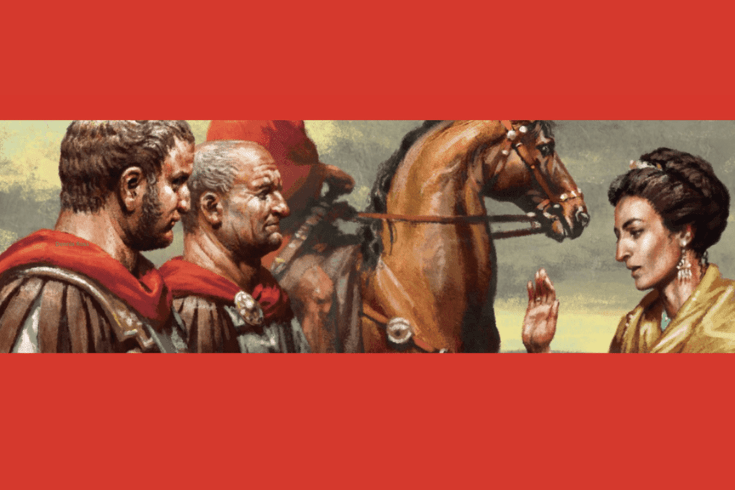
October 29, 2024
Brandeis Hillel and the Schuserman Center for Israel Studies hosted the Boston premiere of the award-winning, uniquely animated Israeli film that tells the story of the destruction of the Second Temple. Watch the trailer.
A panel discussion and Q&A with Brandeis faculty members followed the film screening.
Panelists:
Ziva Hassenfeld, Jack, Joseph and Morton Mandel Assistant Professor of Jewish Education
Eugene Sheppard, Associate Professor of Modern Jewish History and Thought
Shayna Weiss, Senior Associate Director, Schusterman Center for Israel Studies
(Image courtesy of Brandeis Hillel)
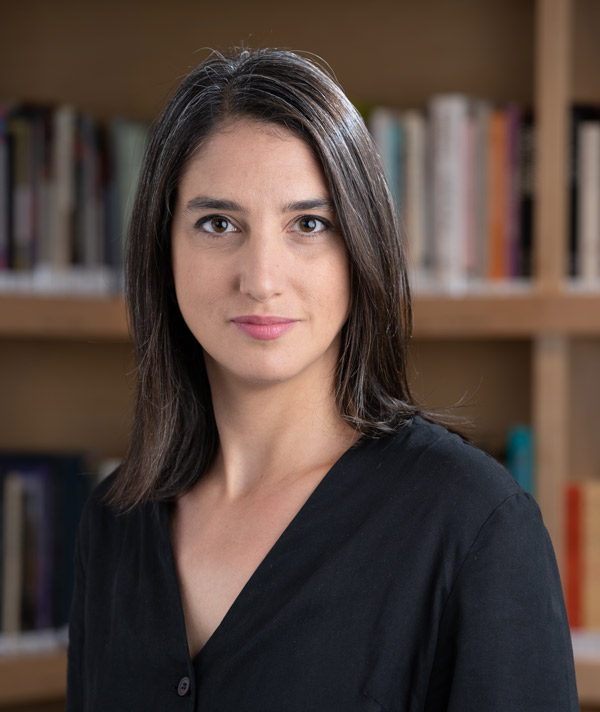
March 25, 2024
In our Israeli Media During Wartime series, veteran Israeli journalist Romy Neumark gave us an insider's look at Israeli media during the war with Hamas, featuring interviews and Q&As with key figures in the field. Neumark has over two decades of experience in Israeli radio and TV, most recently as senior news anchor at the Israeli Public Broadcasting Corporation KAN. Currently, she is the Gerard Weinstock Visiting Lecturer and Fellow at Harvard University, where she was a Nieman Fellow last year. and teaches courses on Israeli media and cinema. In her classes, she interviews a variety of filmmakers and journalists. With her extensive professional experience and trusted perspective, Neumark offers English-speaking audiences a bridge to Israeli culture.
February 26 – Understanding the Israeli Media Landscape
Romy Neumark in conversation with:
- Alexander Kaye, Director of the Schusterman Center for Israel Studies; Stoll Chair in Israel Studies; and Associate Professor, Department of Near Eastern and Judaic Studies
- Shayna Weiss, Senior Associate Director of the Schusterman Center for Israel Studies
March 11 – Challenges of Wartime Investigative Journalism
Featuring Romy Neumark in conversation with:
- Eyal Abrahami, Editor-in-Chief, Shomrim – The Center for Media and Democracy in Israel
Senior journalist Eyal Abrahami has held a number of key reporting and editing roles in Israeli media: Kol Ha'ir, Haaretz, and Sheva Yamim (Seven Days), part of the Yedioth Ahronoth media group. From 2009 to 2018, Abrahami was the editor of G Magazine, published by the financial daily newspaper Globes. Abrahami holds a BA in political science and international relations from the Open University of Israel. - Oren Aharoni, Senior Magazine Reporter for KAN, the Israeli Public Broadcasting Corporation
Aharoni is an experienced Israeli journalist. He is a former magazine and economic reporter for Israel's Channel 2 news and a former editor of “Meet the Press.” He has a degree in social science and journalism from Tel Aviv University. - Chen Liberman, TV Investigative reporter, "Uvda," Israel's documentary and investigative news magazine
Liberman is an investigative reporter on Israeli television who uncovers stories of sexual misconduct, abuse of power and corruption. She reports and works on documentaries for Uvda, Israel's documentary and investigative news magazine. Her latest film, "We are Golani," details the minute-by-minute fall of an Israeli army base on the morning of October 7th.
Monday, March 25 – When Are We Allowed to Laugh Again?: Entertainment after October 7
Romy Neumark in conversation with:
- Nadav Frishman and Yaniv Zohar, Co-creators, headwriters, and showrunners on “Kupa Rashit/ Checkout” (a popular TV sit-com)
- Eti Aneta Segev, Executive producer and showrunner on "Zehu Ze" (a hit TV sketch comedy show); Artistic Manager.
Aneta-Segev started her professional career in 1977 as a soldier at Galei Zahal - Israel’s army radio station. She returned there as head of the cultural desk in 2009. For over 40 years she has worked as artistic manager and executive producer on various television & radio shows, documentary films, stage musical events & record albums. For the past four years she has served as Executive producer and showrunner on the satiric sketch show Zehu Zeh.
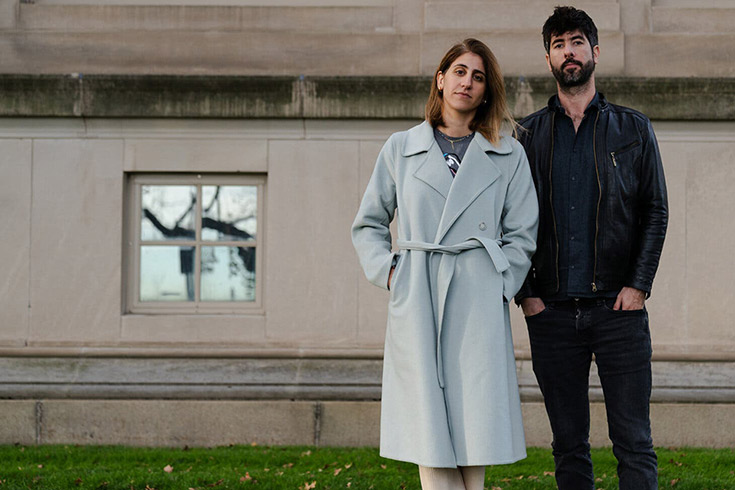
March 7, 2024
An Honest Conversation About Israel/Palestine.
This was a special program for the Brandeis community, with a focus on students. Sally Abed and Alon-Lee Green of Standing Together discussed a new approach to navigating the conflict. Standing Together is a grassroots movement mobilizing Jewish and Palestinian citizens of Israel in pursuit of peace, equality, and social and climate justice.
Sally Abed is an elected national leader at Standing Together, the Jewish-Arab grassroots movement that mobilizes people around issues of peace, equality and social justice. In recent years, she has become a prominent progressive Palestinian voice in Israel. Sally is a recurring guest on the Promised Podcast and the Co-host of the new podcast Groundwork - a mini series about Palestinians and Jews refusing to accept the status quo and working together for change.
Alon-Lee Green is the National co-Director and a founder of Standing Together. He got his start organizing Israel's first trade union of waiters in a chain of coffee-shops and went on to found Israel's first National Waiters Union. Alon-Lee emerged as a prominent leader of Israel's social protest movement in the summer of 2011, and subsequently served as a political adviser in the Knesset, Israel’s parliament.
This program was cosponsored by the Schusterman Center for Israel Studies, the Crown Center for Middle East Studies, and the Mandel Center for the Humanities.

February 27, 2024
In We Are Destroying Ourselves: A Dance Wrecking, Jewish-American choreographer Rebecca Pappas and Israeli-American choreographer Hadar Ahuvia used dance wrecking - a practice of choreographic feedback - as a tool to hold challenging conversations about race, legacy, corporeality, history, and memory. This embodied practice of decolonization offers a model for confronting difficult topics and inviting productive discomfort.
The event unfolded in two phases. First, the wrecking, the destruction of the dance. Then, the performance of the original and the wrecked dances, back to back, as Ahuvia and Pappas discuss legacy, transformation, and destruction as an act of care.
- Hadar Ahuvia (she/her) is a cross-disciplinary artist, ritual leader and Jewish educator. Hadar’s work centers the body in explorations of Jewish political and cultural lineages. She is an artist in residence at the Schusterman Center.
- Rebecca Pappas makes dances that excavate the body as an archive for personal and social memory. She is co-editor of The Oxford Handbook of Jewishness and Dance.
Cosponsored by the Schusterman Center for Israel Studies and the Creativity, the Arts, and Social Transformation Program (CAST) at Brandeis University.
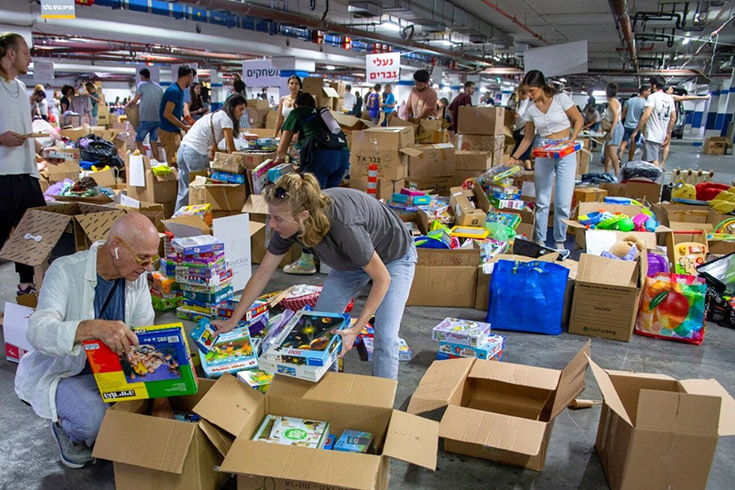
November 20, 2023
In response to the Hamas attacks on October 7th, over 50% of Israelis have volunteered their help. The volunteers come from every sector of Israeli society, and have done everything from repairing bomb shelters to providing free therapy and more. Additionally, Israelis have donated hundreds of millions of shekels, giving at unprecedented levels. Many of these donations are relatively small–only a few hundred shekels.
Join Professor Yehudah Mirsky for a series of conversations with three leading figures from Israeli civil society to hear about how diverse groups of Israelis are responding to the aftermath of October 7th, and what it can teach us about Israeli society as a whole. Attend as few or as many of the conversations as you wish.
November 20: Prof. Michal Muszkat-Barkan, Jerusalem Civilian Command Center and Hebrew Union College (HUC).
WATCH THE RECORDING
December 7: Rabbah Yael Vurgan, Rabbi of the Gaza Border Communities
Watch the recording
December 14: Mr. Mohammad Darawshe, Givat Haviva Center for Shared Society
Watch the recording
(Image: Eran’s Angels packing donations at a parking garage in Tel Aviv. Photo: John Jeffay. Source: Israel21c.org.)
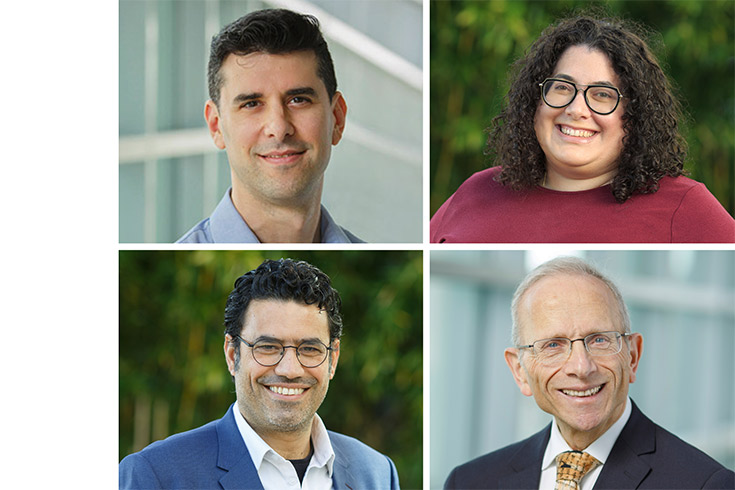
November 20, 2023
Monday, November 20
Tuesday, November 28
Monday, December 4
Special Opportunity for Students:
The first in a series of informal conversation with Schusterman Center faculty and other Brandeis experts about the events of October 7, the resulting war in Gaza, and what it means for our community at Brandeis.
In Sherman Dining Hall. All questions and viewpoints are welcome.
(Pictured, clockwise from top left: Prof. Alexander Kaye, Dr. Shayna Weiss, Prof. Jonathan D. Sarna, and Prof. Yuval Evri.)
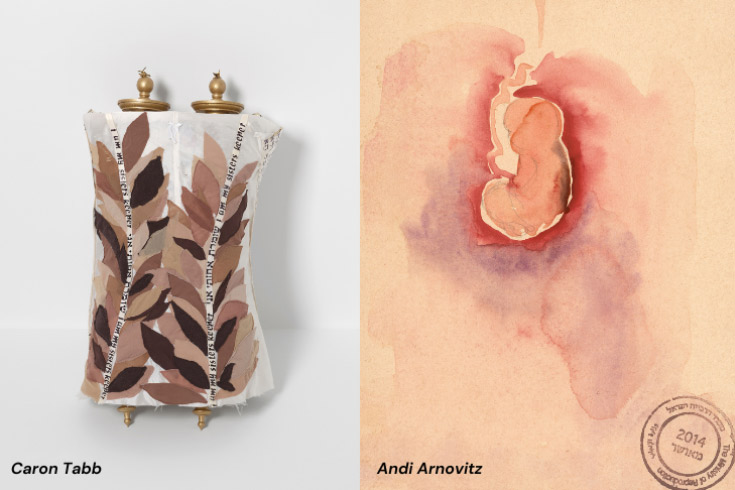
November 29, 2023
Wednesday, November 29
Watch the recording
Andi Arnovitz and Caron Tabb discuss Hadassah-Brandeis Institute's art exhibition "Deeply Rooted Faith in Reproductive Justice," the current war in Israel, and attacks on women’s rights.
Israeli artist Andi Arnovitz, whose work is featured in the exhibition and who has two sons and three sons-in-law currently serving in the IDF, one who was recently injured, will discuss her work in "Deeply Rooted," work related to war, and the experience of being an artist in Israel during these extremely challenging times.
Caron Tabb is the "Deeply Rooted Faith in Reproductive Justice" curator, as well as a contributing artist. Born in apartheid-era South Africa and raised in Israel, Tabb (now based in Boston, MA) is an artist and curator with an extensive background in nonprofit leadership. Her work focuses on social justice and has been exhibited in museums and galleries across the U.S.
Sponsored by Hadassah-Brandeis Institute at Brandeis University, with support from JArts, the Schusterman Center for Israel Studies at Brandeis, the Vilna Shul, and CJP/Combined Jewish Philanthropies.
(Image: Left: Caron Tabb, "I Am My Sisters Keeper 2," 2023, Mixed media, Dimensions variable. Right: Andi Arnovitz, "The Ministry of Fertility One," 2014, watercolor and original stamp, 9 x 7 inches.)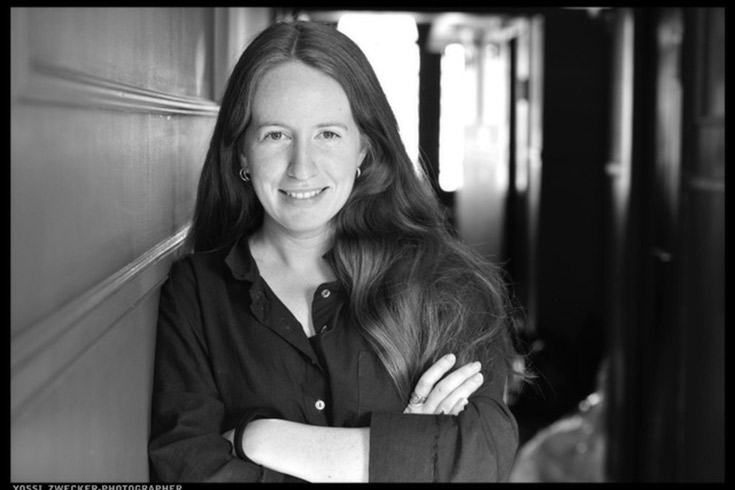
October 16, 2023
Watch the recording
Attendees enjoyed a behind the scenes look into the award winning Israeli television show "Chanshi" with creator and star Aleeza Chanowitz. "Chanshi," which premiered at Sundance in 2023, is a dark comedy about an engaged young woman from the Orthodox Jewish community in Brooklyn who decides to run away to Israel in search of adventure, romance, and more.
The event featured a moderated conversation between Aleeza Chanowitz and Dr Shayna Weiss, associate director of the Schusterman Center for Israel Studies, followed by a Q&A session, and was offered as part of Dr. Weiss's course, Israeli Popular Culture: Language, Gender, and Politics. Please note: The series contains sexually explicit language and discussion of sexual assault.
Aleeza Chanowitz is a writer, director, actor, and creator of the hit TV show “Chanshi”. Brooklyn born and raised, Aleeza moved to Israel in August 2011, when she was 21, to attend the Jerusalem Sam Spiegel Film School. She won several awards for her first short film “Shabbos Kallah” (2017). Her other short film is “Mushkie” (2015).
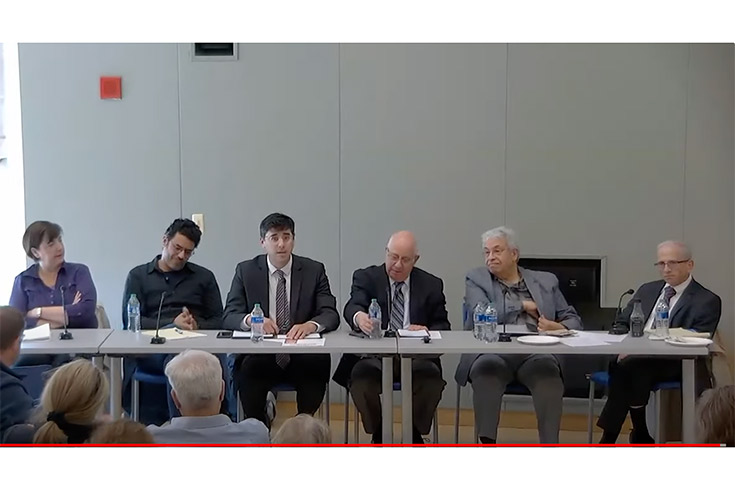
October 12, 2023
An in-person moderated discussion and Q&A, broadcast live on Zoom and recorded, followed by private time for students to converse informally with the faculty discussants.
Featuring:
- Eva Bellin, Myra and Robert Kraft Professor of Arab Politics in the Department of Politics and the Crown Center for Middle East Studies
- Yuval Evri, Assistant Professor of Near Eastern and Judaic Studies on the Marash and Ocuin Chair in Ottoman, Mizrahi, and Sephardic Jewish Studies
- Shai Feldman, Raymond Frankel Professor in Israeli Politics and Society at the Crown Center for Middle East Studies
- Abdel Monem Said Aly, Chairman, CEO, and Director of the Regional Center for Strategic Studies in Cairo; Chairman of the Egyptian daily newspaper Al-Masry Al-Youm; Founding senior fellow at the Crown Center for Middle East Studies
- Jonathan D. Sarna, University Professor; Joseph H. and Belle R. Braun Professor of American Jewish History, Department of Near Eastern & Judaic Studies
Moderated by: Alexander Kaye, Director, Schusterman Center for Israel Studies; Karl, Harry, and Helen Stoll Chair in Israel Studies; Associate Professor, Department of Near Eastern and Judaic Studies
Drop in any time. Light lunch available.
Cosponsored with the Crown Center for Middle East Studies at Brandeis University.
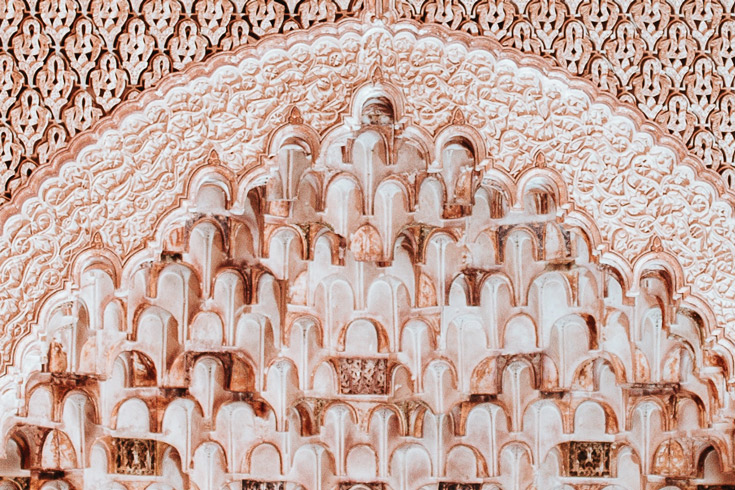
May 11, 2022
Lecture by Julia Philips Cohen (Vanderbilt University) and Devi Mays (University of Michigan). This session was not recorded.
Part of the Sephardi Thought and Modernity Series: Continuity and Rupture, which focuses on continuity and rupture as a way to deepen our dialogue about the different forms modernity has adopted throughout Sephardi history. The series interrogates concepts including the meaning of “modernity” in non-European contexts such as the Levant and/or the Arab world. It explores how non-European Jewish societies developed ways of life that synthesized tradition, change and cultural diversity throughout time. The lectures delve into Sephardi intellectual life, cosmopolitanism, cultural belongings, language, translation and mobility.
Organized by Dr. Angy Cohen, Inaugural Hy and Jenny Belzberg Postdoctoral Associate in Israel Studies, Department of Anthropology and Archaeology at the University of Calgary, and Dr. Yuval Evri, Assistant Professor of Near Eastern and Judaic Studies on the Marash and Ocuin Chair in Ottoman, Mizrahi, and Sephardic Jewish Studies and a core faculty member at the Schusterman Center for Israel Studies.
Sponsored by the Belzberg Program in Israel Studies at the University of Calgary and the Schusterman Center for Israel Studies at Brandeis University. With the collaboration of the American Sefardi Federation, Centro Sefarad Israel, and the International Network for Jewish Thought.
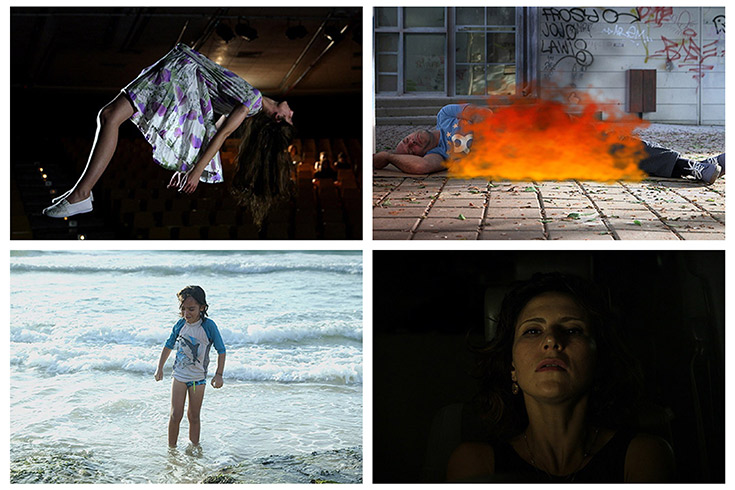
April 25, 2022
A conversation with Israeli artist Eitan Buganim marking the opening of his virtual exhibition.
Conflating desires, miracles, magic and impending catastrophes, "The Orientalist" is a multichannel video installation presented online for the first time by the Schusterman Center for Israel Studies and curated by Dr. Rotem Rozental.
The project is composed of four short videos in full synchronization, arranged at exactly the same rate, with each crop, angle change, or dramatic action happening simultaneously. The soundtrack for each video is a popular “Oriental” Israeli song from the 1980s and 1990s, before this music genre broke into the mainstream. The identical structure attempts to trace the rhythm and melody for each song, highlighting the emotional and social meanings of both the scenes unraveling on screen and the accompanying music.Participants:
Dr. Rotem Rozental, Executive Director, LA Center for Photography
Eitan Buganim, Artist
Moderator:
Dr. Shayna Weiss, Associate Director, Schusterman Center for Israel Studies at Brandeis University
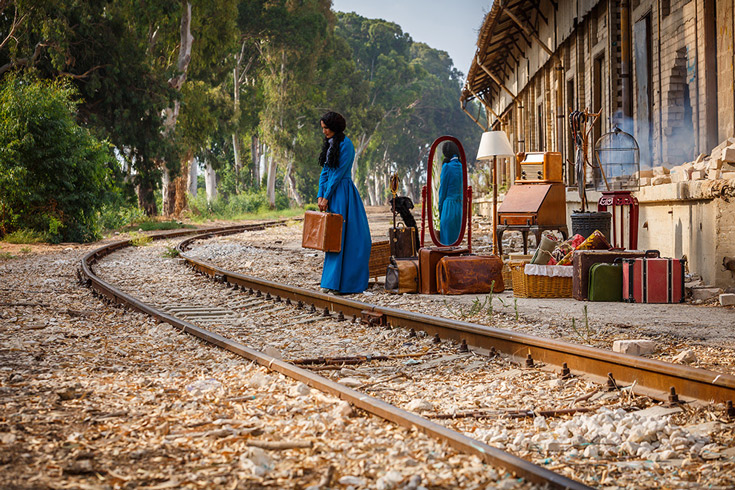
April 13, 2022
This live performance of "Me and My Soul" by multimedia artist Raida Adon at Brandeis University's Wasserman Cinematheque was an in-person event. Held in conjunction with the Rose Art Museum's "Displaced: Raida Adon's Strangeness," the artist's first solo museum show outside of Israel, "Me and My Soul" mixes animation with choreographed live performance, offering a poetic response to the experiences of war, trauma, human fragility, resilience, and hope.
Following the twenty-minute performance, Dr. Gannit Ankori, Henry and Lois Foster Director and Chief Curator, will join Adon for a conversation about her work and artistic practice.
Presented by the Rose Art Museum, Adon’s exhibition and performance are generously supported by Artis, by Jolie Schwab ’78 and David Hodes ’77, and by Brandeis University co-sponsors: the Schusterman Center for Israel Studies, the Department of Fine Arts, and the Edie and Lew Wasserman Fund.
Image: Raida Adon, "Strangeness," 2018. Digital video, 33:30 min., Trailer. Courtesy of the artist.

April 13, 2022
Lecture by Vanessa Paloma Elbaz (University of Cambridge).
Part of the Sephardi Thought and Modernity Series: Continuity and Rupture, which focuses on continuity and rupture as a way to deepen our dialogue about the different forms modernity has adopted throughout Sephardi history. The series interrogates concepts including the meaning of “modernity” in non-European contexts such as the Levant and/or the Arab world. It explores how non-European Jewish societies developed ways of life that synthesized tradition, change and cultural diversity throughout time. The lectures delve into Sephardi intellectual life, cosmopolitanism, cultural belongings, language, translation and mobility.
Organized by Dr. Angy Cohen, Inaugural Hy and Jenny Belzberg Postdoctoral Associate in Israel Studies, Department of Anthropology and Archaeology at the University of Calgary, and Dr. Yuval Evri, Assistant Professor of Near Eastern and Judaic Studies on the Marash and Ocuin Chair in Ottoman, Mizrahi, and Sephardic Jewish Studies and a core faculty member at the Schusterman Center for Israel Studies.
Sponsored by the Belzberg Program in Israel Studies at the University of Calgary and the Schusterman Center for Israel Studies at Brandeis University. With the collaboration of the American Sefardi Federation, Centro Sefarad Israel, and the International Network for Jewish Thought.
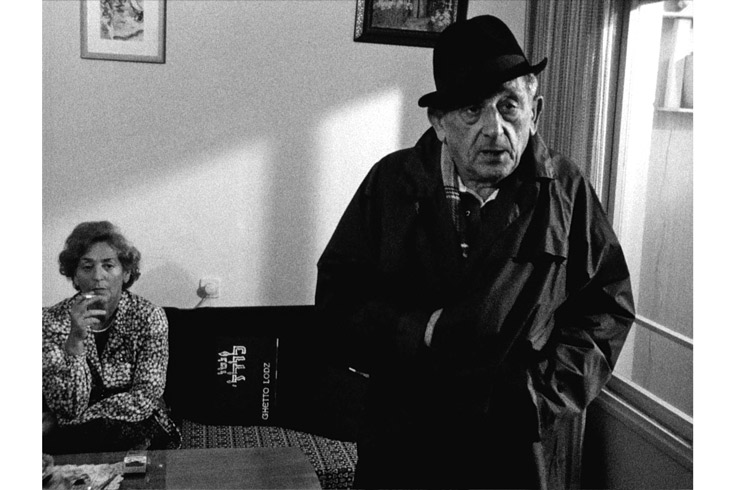
"Memories of the Eichmann Trial"
New Digital Restoration
Directed by David Perlov
Israel, 1979, Hebrew & Polish w/ English subtitles
This was an in-person event.
Panel Discussion:
- Special Guest: Yael Perlov. Award-winning filmmaker Yael Perlov has produced and or edited more than 50 films, including Late Marriage and Ben Gurion, Epilogue (NCJF film festival 2017). She has taught cinema at Tel Aviv University since 1990, and her documentary series “Water,” created by her Israeli and Palestinian film students, opened the Critics’ Week of Venice Film Festival in 2012. Yael began filmmaking alongside her father David Perlov and since his death in 2003, she has been preserving his work.
- Laura Jockusch, Albert Abramson Associate Professor of Holocaust Studies at Brandeis University. Her publications include the edited volume (with Gabriel Finder) "Jewish Honor Courts: Revenge, Retribution and Reconciliation in Europe and Israel after the Holocaust."
- Sharon Pucker Rivo, Executive Director and Co-Founder of The National Center for Jewish Film, is a leading force in the field of Jewish film through her work as a curator, archivist, film distributor, film producer, and academic. She teaches “Film and the Holocaust” at Brandeis University.
Introduction:
Professor Jonathan D. Sarna, University Professor and the Joseph H. & Belle R. Braun Professor of American Jewish History and Director of the Schusterman Center for Israel Studies at Brandeis University. Professor Sarna is the past president of the Association for Jewish Studies and Chief Historian of the National Museum of American Jewish History in Philadelphia.
David Perlov’s 1979 documentary Memories of the Eichmann Trial reveals the trial’s pivotal role in Israeli society through intimate interviews with Holocaust survivors, Israelis of the second generation, and others directly involved in the case, including trial witness Rafi Eitan, who led the Mossad operation to capture Eichmann in Argentina, and survivor Henryk Ross who, with the help of his wife Stefania, took clandestine photographs of life in the Lodz Ghetto. (Ross’s photos were exhibited at the MFA Boston in 2017). David Perlov, often called the “father of Israeli documentary cinema,” does an extraordinary job drawing out his subjects whom he interviewed in crisp 16mm eighteen years after the trial and execution of Adolf Eichmann. Broadcast only once on Israeli television, the film was rediscovered and restored by the Perlov family in partnership with the Yad Vashem Visual Center, with support from the Forum for the Preservation of Audio-Visual Memory in Israel.
View Trailer: https://vimeo.com/420559397
Directions to Wasserman Cinematheque: https://jewishfilm.org/
Presented by the National Center for Jewish Film, the Consulate General of Israel to New England, and the following Brandeis University partners: the Schusterman Center for Israel Studies, the Tauber Institute for the Study of European Jewry, the Hebrew Language Program, and the Department of Near Eastern & Judaic Studies.
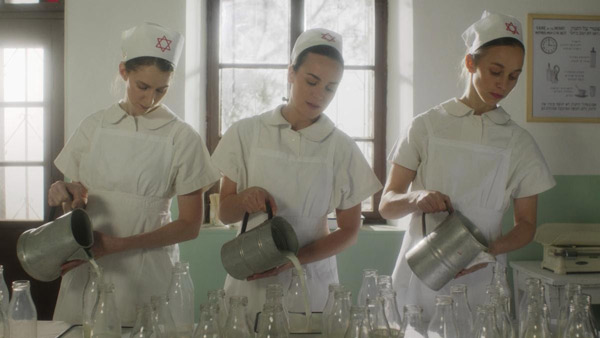
April 7, 2022
Israeli artist Tamar Nissim in conversation with Dr. Lisa Fishbayn Joffe and Dr. Shoshana Madmoni-Gerber.
Through video and still photography, Tamar Nissim's exhibition, "Contagious Truths" explores the experience of women in the Mizrahi immigrant community in Israel, with a particular focus on the troubling stories of babies taken from their mothers in what has come to be known as the Yemenite Babies Affair.
Tamar Nissim was in conversation with:
Lisa Fishbayn Joffe, director of the Hadassah-Brandeis Institute.
Shoshana Madmoni-Gerber, an associate professor of communication and journalism at Suffolk University and the author of "Israeli Media and the Framing of Internal Conflict: The Yemenite Babies Affair."
Studio Israel is an online conversation series that looks at Israeli culture and diversity through the lens of contemporary Israeli artists and creatives. Chaired by Caron Tabb. Studio Israel is a partnership among Hadassah-Brandeis Institute, Jewish Arts Collaborative, the Schusterman Center for Israel Studies, and the Vilna Shul, and is made possible by generous support from Combined Jewish Philanthropies.
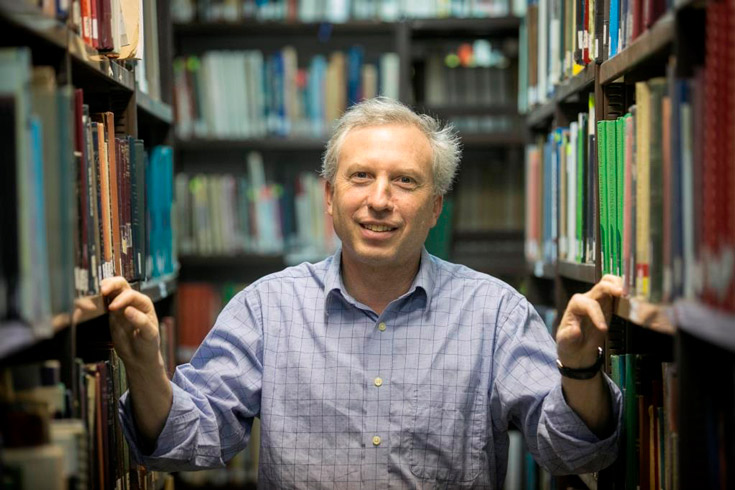
March 29, 2022
A brown-bag lunch talk with Dr. Ari Ackerman, a Schusterman Center for Israel Studies Visiting Scholar. The talk explored the social criticism of the Jewish philosopher and Israeli public intellectual, Eliezer Schweid. It examined his criticism of contemporary Israeli economic, political and educational policies as rooted in his philosophy of Judaism.Dr. Ackerman is a senior lecturer in Jewish philosophy and education at Schechter Institute in Jerusalem and the incumbent Golinkin Chair in TALI Jewish Education. He also serves as the academic advisor to the TALI Educational Fund. He received his doctorate in Jewish thought from Hebrew University and published a critical edition of the sermons of Zerahia Halevi Saledin (Beer Sheva University Press, 2013). His book on the philosophy of Hasdai Crescas is forthcoming from Brill Press.
This talk was cosponsored by the Brandeis Seminar on Contemporary Jewish Life, the Jack, Joseph and Morton Mandel Center for Studies in Jewish Education, and the Schusterman Center for Israel Studies at Brandeis University.
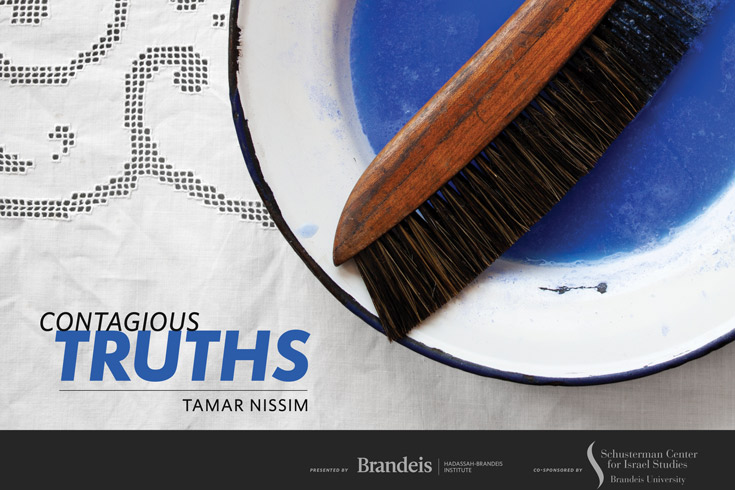
March 10, 2022
Israeli artist Tamar Nissim discusses her archival research and multimedia exhibition, "Contagious Truths." The exhibiton and event are presented by Hadassah-Brandeis Institute and cosponsored by the Schusterman Center for Israel Studies.

March 9, 2022
Lecture by Deborah Starr (Cornell University) and Eyal Sagui Bizawe (Hebrew University of Jerusalem)
Part of the Sephardi Thought and Modernity Series: Continuity and Rupture, which focuses on continuity and rupture as a way to deepen our dialogue about the different forms modernity has adopted throughout Sephardi history. The series interrogates concepts including the meaning of “modernity” in non-European contexts such as the Levant and/or the Arab world. It explores how non-European Jewish societies developed ways of life that synthesized tradition, change and cultural diversity throughout time. The lectures delve into Sephardi intellectual life, cosmopolitanism, cultural belongings, language, translation and mobility.
Organized by Dr. Angy Cohen, Inaugural Hy and Jenny Belzberg Postdoctoral Associate in Israel Studies, Department of Anthropology and Archaeology at the University of Calgary, and Dr. Yuval Evri, Assistant Professor of Near Eastern and Judaic Studies on the Marash and Ocuin Chair in Ottoman, Mizrahi, and Sephardic Jewish Studies and a core faculty member at the Schusterman Center for Israel Studies.
Sponsored by the Belzberg Program in Israel Studies at the University of Calgary and the Schusterman Center for Israel Studies at Brandeis University. With the collaboration of the American Sefardi Federation, Centro Sefarad Israel, and the International Network for Jewish Thought.
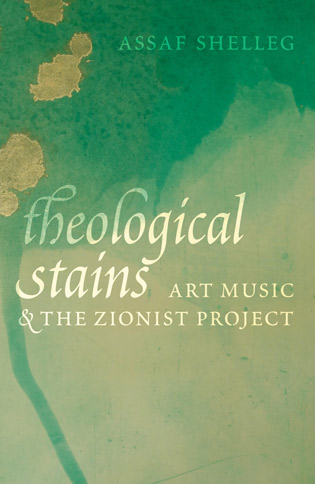
March 7, 2022
Michal Ben-Horin in conversation with Assaf Shelleg about his book, "Theological Stains: Art Music and the Zionist Project" (Oxford University Press, 2020). The program will take place in Hebrew. Free and open to the public. Registration required.
Assaf Shelleg is Assistant Professor of Musicology at the Hebrew University of Jerusalem. He is the author of the award-winning book "Jewish Contiguities and the Soundtrack of Israeli History" (Oxford University Press, 2014) and "Theological Stains: Art Music and the Zionist Project" (Oxford University Press, 2020). Shelleg is also a music contributor for Haaretz, and the curator of the Israel Philharmonic Orchestra.
Michal Ben-Horin is an Associate Professor of Comparative Literature and Head of the Department of Comparative Literature at Bar-Ilan University. She is the author of "Musical Biographies: The Music of Memory in Post-1945 German Literature" (de Gruyter, 2016), and "Reading the Voices: Musical Poetics between German and Hebrew" (in Hebrew), forthcoming (The Bialik Institute, 2022).
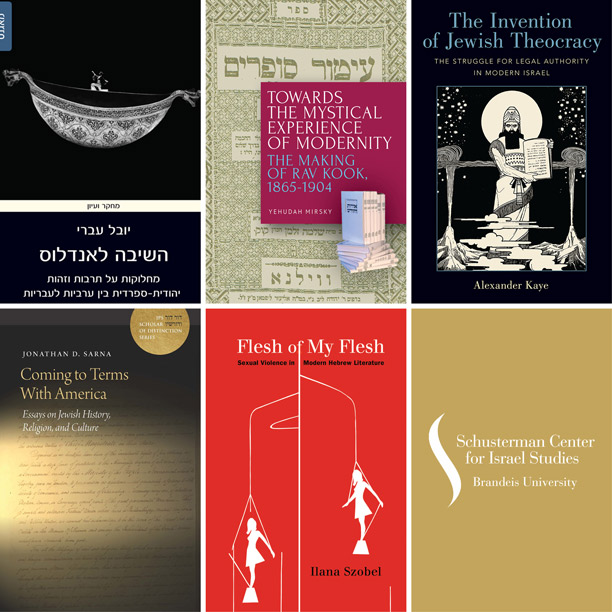
February 14, 2022
A conversation between Professor David Katz and five core faculty members at the Schusterman Center for Israel Studies who authored new books in 2020 and 2021, discuss their scholarship and their contributions to the field of Israel Studies.
David Katz, Visiting Professor of History in the Departments of History and of Near Eastern and Judaic Studies, and Director of the History of Ideas Program, Brandeis University
in conversation with:
- Yuval Evri, Assistant Professor of Near Eastern and Judaic Studies on the Marash and Ocuin Chair in Ottoman, Mizrahi, and Sephardic Jewish Studies: The return to Al-Andalus: Disputes over Sephardic culture and identity between Arabic and Hebrew Magnes Press, 2020
- Alexander Kaye, Karl, Harry, and Helen Stoll Assistant Professor of Israel Studies: The Invention of Jewish Theocracy: The Struggle for Legal Authority in Modern Israel Oxford University Press, 2020
- Yehudah Mirsky, Professor of Near Eastern and Judaic Studies: Towards the Mystical Experience of Modernity: The Making of Rav Kook, 1865-1904 Academic Studies Press, 2021
- Jonathan D. Sarna, University Professor and Joseph H. and Belle R. Braun Professor of American Jewish History and Director, Schusterman Center for Israel Studies: Coming to Terms with America: Essays on Jewish History, Religion, and Culture Jewish Publication Society, 2021
- Ilana Szobel, Associate Professor on the Joseph H. and Belle R. Braun Chair in Hebrew Literature: Flesh of My Flesh: Sexual Violence in Modern Hebrew Literature SUNY Press, 2021
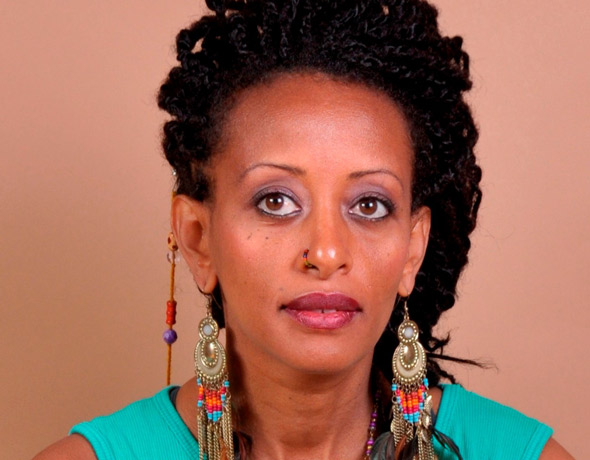
February 10, 2022
Dege Feder, an award-winning Ethiopian-Israeli choreographer, dancer and musician, in conversation with Dr. Shula Mola. Feder has performed, choreographed, and taught around the world. In addition to her global presence, she has also worked as a dance teacher to empower women and young girls in Israel's Ethiopian community.
Shula Mola is the Schusterman Center post-doctoral fellow. Dr. Mola uses the power of academics to advance social justice, addressing social stratification, oppression, and structural racism. Her current focus is on the preservation of the Ethiopian-Israeli community's history and heritage.
Studio Israel is an online conversation series that looks at Israeli culture and diversity through the lens of contemporary Israeli artists and creatives. Chaired by Caron Tabb. Studio Israel is a partnership among Hadassah-Brandeis Institute, Jewish Arts Collaborative, the Schusterman Center for Israel Studies, and the Vilna Shul, and is made possible by generous support from Combined Jewish Philanthropies.
About the Artist
Dege Feder is a choreographer, dancer, artistic director, and musician. She has been the manager and choreographer of Beta Dance Troupe since 2013. Before that, she danced solo parts in Eskesta dance troupe and was among the founding dancers of Beta Dance Troupe. Feder has performed in many international festivals in Germany, France, Columbia, Croatia, South Africa, the USA (New York, Philadelphia, Boston, Chicago), and more. She also performed on the main stages in Israel festivals and gave workshops and masterclasses worldwide in Jacob’s Pillow Festival, the National Ethiopian Theatre, Costa Rica National Dance Company, Ohio State University, and others. Feder received the Israeli Minister of Culture prize for dance creators in 2018, the New Israeli Fund Essential Art prize in 2020, the Ministry of Aliyah and Integration prize for outstanding contribution for art and society in 2021, and the Rabinovich Foundation/Neve Schechter prize for original Israeli art in 2021.

February 9, 2022
Lecture by Lital Levy (Princeton University).
Organized by Dr. Angy Cohen, Inaugural Hy and Jenny Belzberg Postdoctoral Associate in Israel Studies, Department of Anthropology and Archaeology at the University of Calgary, and Dr. Yuval Evri, Assistant Professor of Near Eastern and Judaic Studies on the Marash and Ocuin Chair in Ottoman, Mizrahi, and Sephardic Jewish Studies and a core faculty member at the Schusterman Center for Israel Studies.
Sponsored by the Belzberg Program in Israel Studies at the University of Calgary and the Schusterman Center for Israel Studies at Brandeis University. With the collaboration of the American Sefardi Federation, Centro Sefarad Israel, and the International Network for Jewish Thought.

January 19, 2022
Watch the recording
Part of the Sephardi Thought and Modernity Series: Continuity and Rupture, which focuses on continuity and rupture as a way to deepen our dialogue about the different forms modernity has adopted throughout Sephardi history. The series interrogates concepts including the meaning of “modernity” in non-European contexts such as the Levant and/or the Arab world. It explores how non-European Jewish societies developed ways of life that synthesized tradition, change and cultural diversity throughout time. The lectures delve into Sephardi intellectual life, cosmopolitanism, cultural belongings, language, translation and mobility.
Organized by Dr. Angy Cohen, Inaugural Hy and Jenny Belzberg Postdoctoral Associate in Israel Studies, Department of Anthropology and Archaeology at the University of Calgary, and Dr. Yuval Evri, Assistant Professor of Near Eastern and Judaic Studies on the Marash and Ocuin Chair in Ottoman, Mizrahi, and Sephardic Jewish Studies and a core faculty member at the Schusterman Center for Israel Studies.
Sponsored by the Belzberg Program in Israel Studies at the University of Calgary and the Schusterman Center for Israel Studies at Brandeis University. With the collaboration of the American Sefardi Federation, Centro Sefarad Israel, and the International Network for Jewish Thought.
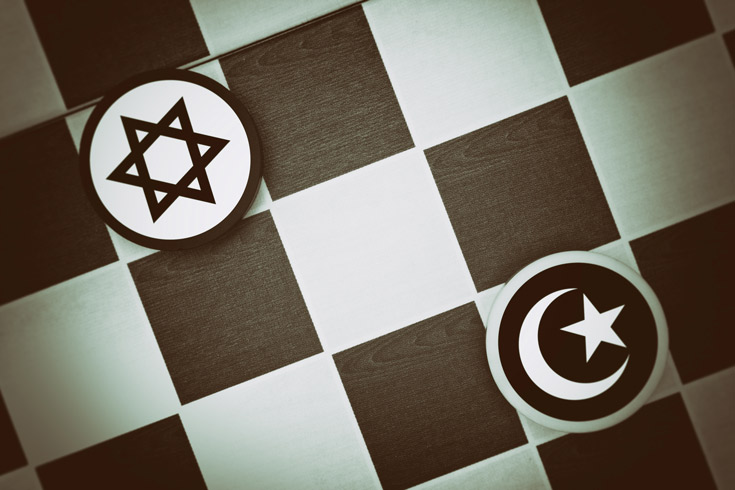
December 13, 2021
Jews and Muslims live together in contemporary Dubai, Berlin, and Warsaw. Our three speakers will present three case studies evaluating emerging trends and patterns in each trans-urban context. Through qualitative anthropological research centralizing respondents' own lived experiences and worldviews, interactions between Muslims and Jews in each location are studied as a formative part of public discourse.
Perhaps the most visible manifestations of these relations are represented by the ambitious interfaith projects that were recently established in each area. The Abrahamic Family House (UEA), The House of One (GE), and The Community of Conscience (PL) reveal the aspirations of multi-faith religious leaders to overcome polarizing dichotomies and search for common ground. One of the conclusive outcomes of the study is a somewhat diminishing impact of the Israeli-Palestinian conflict on Jewish-Muslim relations; however, the extent differs in each location. The scholars also detected something they did not expect to find: an inclination towards a joint-Muslim-Jewish Middle Eastern identity. Read more.
Speakers:
- Marcela Menachem Zoufalá is Deputy Director of the Centre for the Study of the Holocaust and Jewish Literature at the Faculty of Arts, Charles University Prague, and Summer Institute for Israel Studies 2015 Fellow.
-
Joanna Dyduch is Associate Professor at Jagiellonian University in Krakow, at the Department of Israel and Levant at Institute of Middle and Far East.
- Olaf Glöckner is a researcher at the Moses Mendelssohn Centre for European-Jewish Studies in Potsdam (MMZ), and Lecturer at the Historical Institute and at the Department of Jewish Studies at Potsdam University.
Presented by the Center for German and European Studies, in coordination with the Schusterman Center for Israel Studies at Brandeis University.
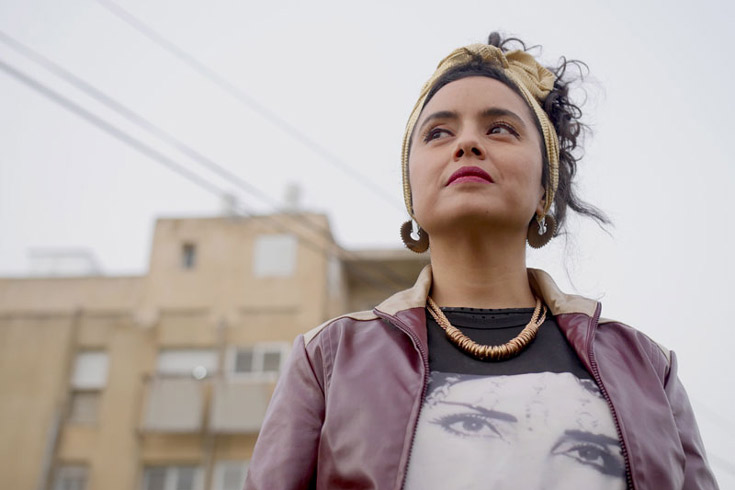
December 9, 2021
Professor Yuval Evri in conversation with Neta Elkayam, an Israeli singer and visual artist whose work plumbs the culture of the Moroccan Jews from which she descended. Elkayam and her musical partner and husband Amit Hai Cohen were recently the subjects of the documentary film, “In Your Eyes, I See My Country,” which follows them back to Morocco.
Yuval Evri is Assistant Professor of Near Eastern and Judaic Studies and Marash and Ocuin Chair in Ottoman, Mizrahi and Sephardic Jewish Studies at Brandeis University, and a core faculty member at the Schusterman Center for Israel Studies.
Studio Israel is an online conversation series that looks at Israeli culture and diversity through the lens of contemporary Israeli artists and creatives. Chaired by Caron Tabb. Studio Israel is a partnership among Hadassah-Brandeis Institute, Jewish Arts Collaborative, the Schusterman Center for Israel Studies, and the Vilna Shul, and is made possible by generous support from Combined Jewish Philanthropies. This event is also cosponsored by the Consulate General of Israel to New England.
About the Artist
Neta Elkayam has gained worldwide recognition as a performer of North African music. She collaborates with renowned local and international musicians and orchestras on stages around the world. She has received multiple awards including the ACUM Award, the Sami Michael Award, and was nominated for an Ophir Oscar Award for a leading role in the 2019's musical film "Red Fields (Mami)." Learn more about her in the New York Times profile, Bridging Time, Distance and Distrust, With Music.
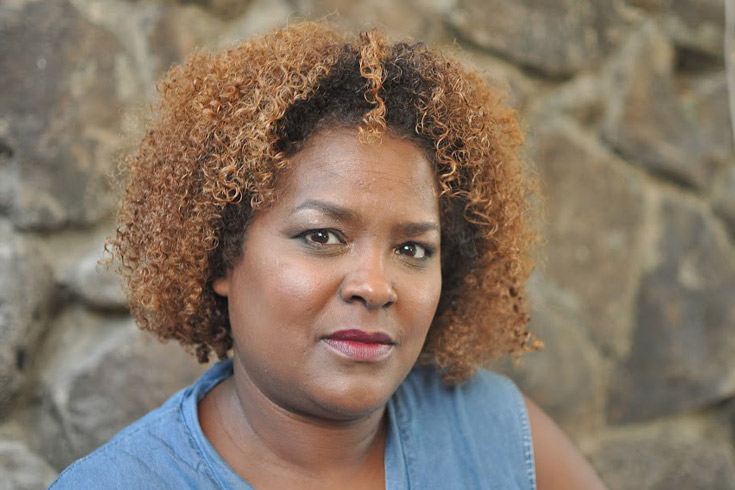
November 21, 2021
Dr. Shula Mola discussed the struggle of Ethiopian Jews in Israel for "normality," and the variety of ways to deal with exclusion and racism. Dr. Mola is an Israeli civil and human rights activist and educator. Shehas been a leader of the Association for Ethiopian Jews (AEJ) for over 20 years. She is a founding member and key activist of Mothers on Guard – a group of mothers who protest police brutality against youth of Ethiopian origin. She is a board member of the New Israel Fund and a post-doctoral fellow at the Schusterman Center for Israel Studies.
Cosponsored by Temple Emunah, Combined Jewish Philanthropies, and the Schusterman Center for Israel Studies at Brandeis University.
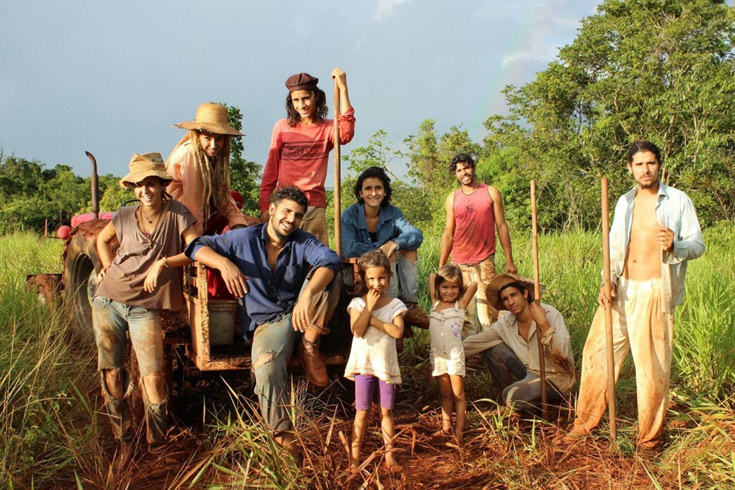
November 21, 2021
Part of the Boston Jewish Film Festival
Took place virtually from November 7-21, 2021
Dir. Ofer Freiman
Documentary, 2021, Brazil/Israel, 86 min.
Cleo fulfilled his dream: to leave the big city with his wife and 15 children, to establish a family commune on a farm in Brazil. Exploring their family roots leads the children to discover their surprising Jewish heritage. They begin to dream of immigrating to Israel, putting the family’s utopia in jeopardy. Winner: Best Documentary, Haifa International Film Festival, 2020.
Presented by the Boston Jewish Film Festival. Sponsored by the Hadassah-Brandeis Institute Project on Latin American Jewish & Gender Studies. In Partnership with the Schusterman Center for Israel Studies.
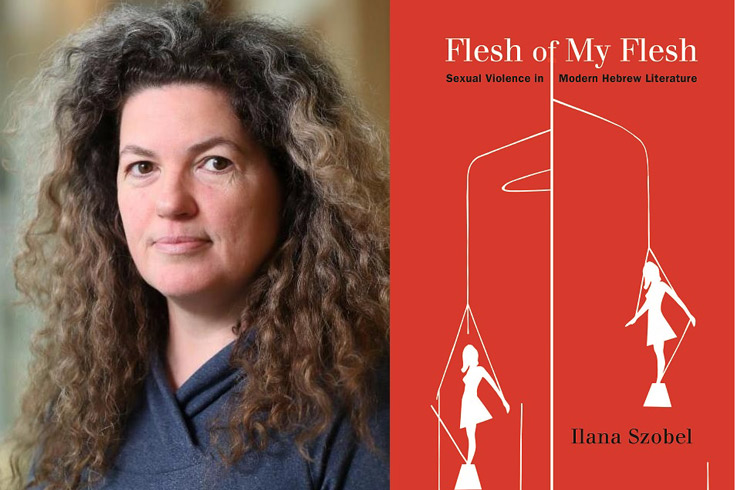
November 17, 2021
A discussion of Prof. Ilana Szobel's new book. "Flesh of My Flesh" (SUNY Press, 2021) looks at one of the most silenced and repressed aspects of Israeli culture by examining the trope of sexual violence in modern Hebrew literature. Prof. Szobel explores how sexual violence participates in, encourages, or resists concurrent ideologies in Jewish and Israeli culture, and situates the rhetoric of sexual aggression within the contexts of gender, ethnicity, disability, and national identity.
Introduction: ChaeRan Freeze, Frances and Max Elkon Chair in Modern Jewish History, Department of Near Eastern and Judaic Studies; Chair, Department of Women's, Gender, and Sexuality Studies, Brandeis University
Discussants:
Sue Lanser, Professor Emerita of Comparative Literature, English, and Women's, Gender and Sexuality Studies, Brandeis University
Ilana Szobel, Associate Professor on the Joseph H. and Belle R. Braun Chair in Hebrew Literature, Department of Near Eastern and Judaic Studies; core faculty in the Department of Women's, Gender, and Sexuality Studies and at the Schusterman Center for Israel Studies, Brandeis University
Q&A moderated by: Shayna Weiss, Associate Director, Schusterman Center for Israel Studies, Brandeis University
Use code XAIS21 to purchase the book online at a discount of 30% paperback or 40% hardcover, through December 17, 2021.
Cosponsored by: Hadassah-Brandeis Institute; Department of Near Eastern and Judaic Studies; Department of Women's, Gender and Sexuality Studies; Schusterman Center for Israel Studies; and Women's Studies Research Center, at Brandeis University.
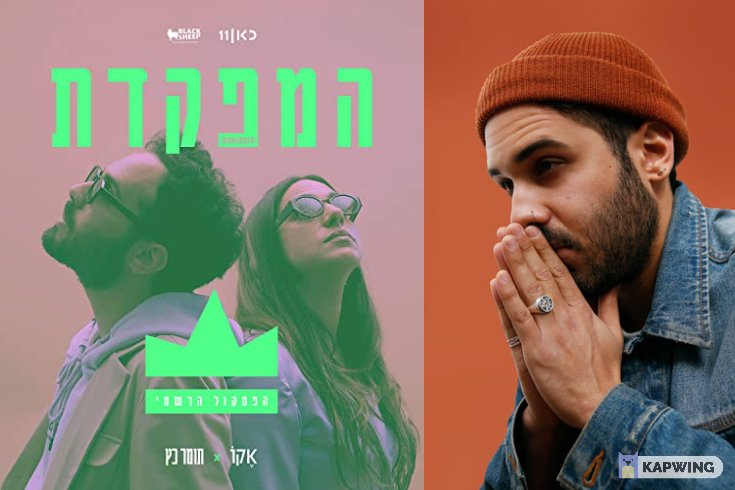
November 15, 2021
A fascinating behind-the-scenes look into the thrilling process of creating a soundtrack with Tomer Katz, the musical producer behind the soundtrack of the latest Israeli mega hit TV series “Dismissed” (Ha’Mefakedet). This was an opportunity to sit on on a special session of Dr. Shayna Weiss' class, Israeli Popular Culture: Language, Gender, and Politics.The class provided an overview of the popular music industry in Israel, including all of the major trends and influences that make it so unique, as well as Katz's business strategy as an independent musical artist. We took a deep dive into the artistic process and creative challenges in writing music, lyrics, and themes inspired by Israel’s social dilemmas and diverse identities that are expressed in the series, by the characters, and their experiences in the Israeli Defense Forces. The session concluded with a special interactive LIVE show.
Tomer Katz is a Tel Aviv based producer/writer who has acquired recent buzz under the moniker D Fine Us. Graduated with excellence from Rimon School of Music, Tomer has worked with some of Israel’s top contemporary musicians, such as Noga Erez, Rona Kenan, Netta Barzilai, and many more. Pulling references from jazz, soul and R&B, Tomer mixes old with new, infusing contemporary, electronic textures to create a compelling pastiche of "culture-clashed" music.
Cosponsored by the Brandeis International Business School's Israel Initiative and the Schusterman Center for Israel Studies at Brandeis University. In partnership with the Consulate General of Israel to New England.
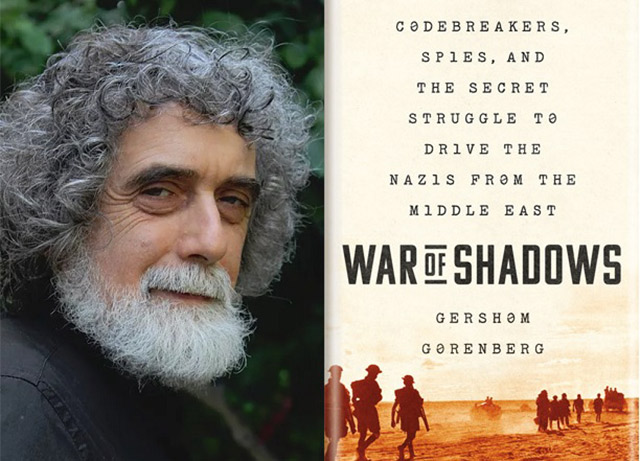
November 9, 2021
"War of Shadows" author Gershom Gorenberg in conversation with Prof. Jonathan D. Sarna and Prof. Yehudah Mirsky.
In the summer of 1942, Rommel's army was a day from Cairo, a week from Tel Aviv. The SS was ready to go into action. The Jews of Palestine expected catastrophe. Espionage brought the Nazis this far - and only espionage could stop them.
"War of Shadows" is the epic story of the World War II intrigues that brought Germany's Erwin Rommel to the brink of conquering the Middle East. Years in the making, based on newly discovered documents, this book is a feat of research and storytelling. As in his previous work, Gorenberg strips away myths about Middle East history. War of Shadows debunks the established "war without hate" narrative about the battle for North Africa - a narrative that erased the people who lived in the region and the reach of the Holocaust beyond Europe.
As political history, War of Shadows describes events that would shape the Middle East and set the stage for the creation of Israel. As espionage history, it describes the origins of high-tech encryption and hacking. And as cinematic non-fiction, it's the story of forgotten heroes, people who changed the world and were erased from memory.
Gershom Gorenberg is a historian and journalist. His previous books include "The Unmaking of Israel" and "The Accidental Empire: Israel and the Birth of the Settlements, 1967-1977." He is a columnist for the Washington Post, and has written for The New York Times Magazine, Atlantic Monthly and The New York Review of Books and in Hebrew for Haaretz. He lives in Jerusalem, except during stints teaching a workshop on writing history at the Columbia Graduate School of Journalism.
Jonathan D. Sarna directs the Schusterman Center for Israel Studies. He is University Professor, and Joseph H. and Belle R. Braun Professor of American Jewish History in the Department of Near Eastern & Judaic Studies at Brandeis University.
Yehudah Mirsky is a professor of Near Eastern and Judaic Studies and core faculty member at the Schusterman Center for Israel Studies at Brandeis University.
Cosponsored by the Center for German and European Studies and the Schusterman Center for Israel Studies at Brandeis University.
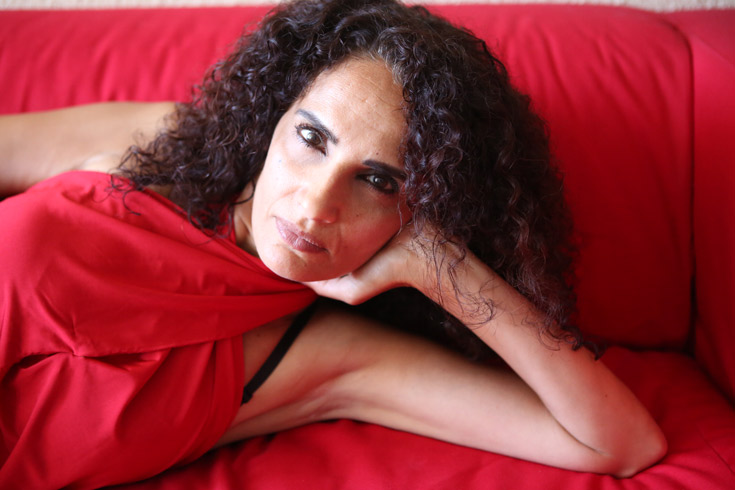
October 14, 2021
Dr. Gannit Ankori, Henry and Lois Foster Director and Chief Curator of the Rose Art Museum and Professor of Fine Arts and Women, Gender and Sexuality Studies at Brandeis University, in conversation with Israeli-born Palestinian multi-media artist, director, and actor Raida Adon.
Raida Adon’s Body Recalled (2011) is currently on view in re: collections, Six Decades at the Rose Art Museum. In her work, Adon employs fictional narratives imbued with a sense of alienation to address a personal and collective search for identity and longing for home.
This program is presented by Studio Israel, an online conversation series that looks at Israeli culture and diversity through the lens of contemporary Israeli artists and creatives. Chaired by Caron Tabb. Studio Israel is a partnership among Hadassah-Brandeis Institute, Jewish Arts Collaborative, the Schusterman Center for Israel Studies, and the Vilna Shul, and is made possible by generous support from Combined Jewish Philanthropies. This event is also cosponsored by the Rose Art Museum, and is supported by the New Israel Fund’s Essential Art project.
About the artist:
Raida Adon (b. Acre, Israel, 1972) is an Israeli-Palestinian multi-media artist, whose artworks emerge from her complex biography, addressing conflicted nations and the relationship between two interrelated societies. Adon is also an acclaimed television and film actress, as well as a director known for A Trumpet in the Wadi (2002), Pillars of Smoke (2009), and Fauda (2015)
Adon’s artwork has been featured in several international gallery and museum exhibitions, including at The Rose Art Museum at Brandeis University (Waltham, MA), The Israel Museum (Jerusalem, Israel), Tel Aviv Museum of Art (Tel Aviv, Israel), Mana Contemporary (Jersey City, New Jersey), Tokyo Metropolitan Art Museum (Tokyo, Japan), Philip Van Rosen Gallery (Koln, Germany), and many more. Adon is a graduate of the Bezalel Academy of Arts and Design in Jerusalem. The artist lives and works in Tel Aviv-Yafo.
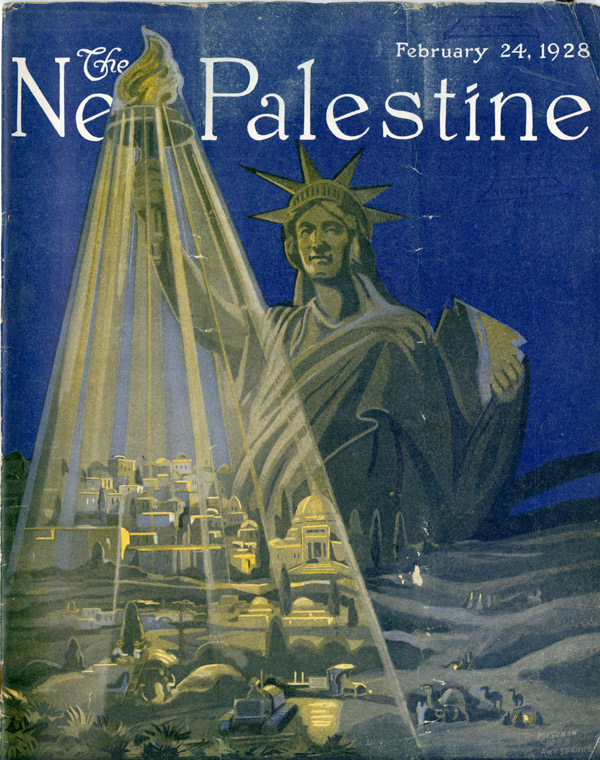
October 12, 2021
Learn about American Jewry and the Land of Israel during the first decades of the twentieth century with the authors of bold new scholarship on the subject.
While there is significant literature concerning American Zionism, the study of American Jews and the Land of Israel has, until now, been relegated to the margins of the Israel Studies field. Now in the space of just over a year, a number of books have appeared that deal in different ways with the story of American Jews and the Yishuv, the Jewish community of Palestine, in the decades prior to the creation of the State of Israel. Three of the authors behind this bold new scholarship will discuss their books:
- “Judah Magnes: The Prophetic Politics of a Religious Binationalist” (Jewish Publication Society) by David Barak-Gorodetsky, Israel Institute Visiting Fellow at the University of Chicago Divinity School and director of the Ruderman Program for American Jewish Studies at Haifa University
- “The Hebrew Orient: Palestine in Jewish Visual Culture 1901-1938” (SUNY Press) by Jessica L. Carr, Berman scholar of Jewish Studies and Assistant Professor of Religious Studies at Lafayette College in Easton, PA
- “To Repair a Broken World: The Life of Henrietta Szold Founder of Hadassah” (Harvard University Press) by Dvora Hacohen, Professor of Modern Jewish History at Bar Ilan University. Her history of Youth Aliyah entitled “The Children of the Time: Youth Aliyah 1933-1948” won the Ben Gurion Prize for scholarship.
Moderating the discussion will be Jonathan D. Sarna, Director of the Schusterman Center for Israel Studies, University Professor, and Joseph H. and Belle R. Braun Professor of American Jewish History, Department of Near Eastern & Judaic Studies at Brandeis University.
Cosponsored with the Hadassah-Brandeis Institute.
Free and open to all. Registration required.
Image: “Give Today and Build For Ever!” Cover of The New Palestine (Feb. 24, 1928). Reproduced in "The Hebrew Orient" under fair use. Copyright the Zionist Organization of America.

October 5, 2021
A public conversation, in conjunction with the release of Genomic Citizenship: The Molecularization of Identity in the Contemporary Middle East, with its author, Prof. Ian McGonigle, and Prof. Sara Shostak, two experts working at the intersection of science and society.
Based on ethnographic work in Israel and Qatar, two small Middle Eastern ethno-nations with significant biomedical resources, Genomic Citizenship explores the relationship between science and identity. Prof. McGonigle discusses biological understandings of Jewishness, especially in relation to the intellectual history of Zionism and Jewish political thought, and considers the possibility of a novel application of genetics in assigning Israeli citizenship. He also describes developments in genetic medicine in Qatar and analyzes the Qatari Biobank in the context of Qatari nationalism and state-building projects.
Ian McGonigle is Assistant Professor of Anthropology and Science, Technology, and Society at Nanyang Technological University (NTU) in Singapore and an alumnus of the Schusterman Center’s Summer Institute for Israel Studies. Before joining NTU, he held postdoctoral positions at Tel Aviv University, Harvard University, and the University of Cambridge. Prof. McGonigle’s work in the social study of science examines the role of science in identity formation and nation-building, revealing the privileged role of biology in mediating ethnic and national identities and stabilizing national consciousnesses.
Sara Shostak is Associate Professor of Sociology and Health: Science, Society and Policy, Brandeis University. She is the author of the award-winning book Exposed Science: Genes, the Environment, and the Politics of Population Health, served as the associate editor of a special issue of the American Journal of Sociology focused on genetics and social structure, and has an extensive record of publications on whether and how genetic information shapes people’s lives and life chances.
September 14, 2021
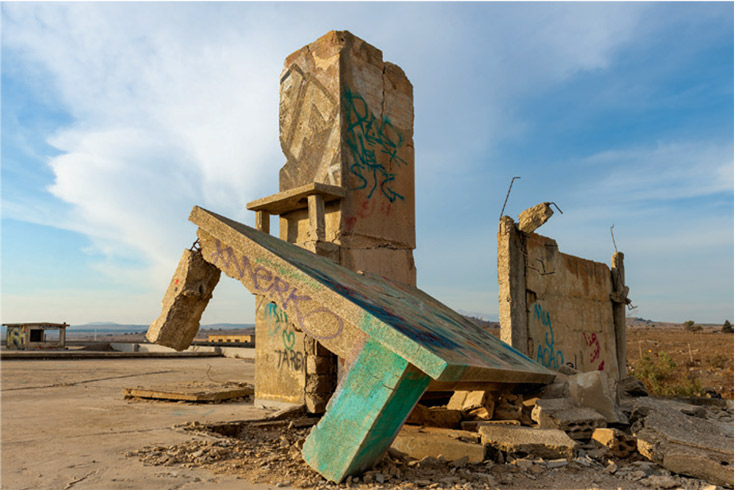 Join us to mark the closing of Dana Arieli’s virtual exhibition "The Zionist Phantom." This live conversation will expand upon the themes emerging from the exhibition, suggesting new and exciting connections between international artists, ideas and creative projects that explore collective histories, personal traumas and their presence in public spaces.
Join us to mark the closing of Dana Arieli’s virtual exhibition "The Zionist Phantom." This live conversation will expand upon the themes emerging from the exhibition, suggesting new and exciting connections between international artists, ideas and creative projects that explore collective histories, personal traumas and their presence in public spaces.
Prof. Adriana Katzew will present her photographic work in conversation with Dr. Shayna Weiss. Katzew has been unearthing stories and memories of people, moments and places, inspired and driven by the history of her own Mexican-Jewish family. Prof. Dana Arieli will then join the discussion to address some of the similarities and differences between their works. Moderated by the exhibition curator, Dr. Rotem Rozental.
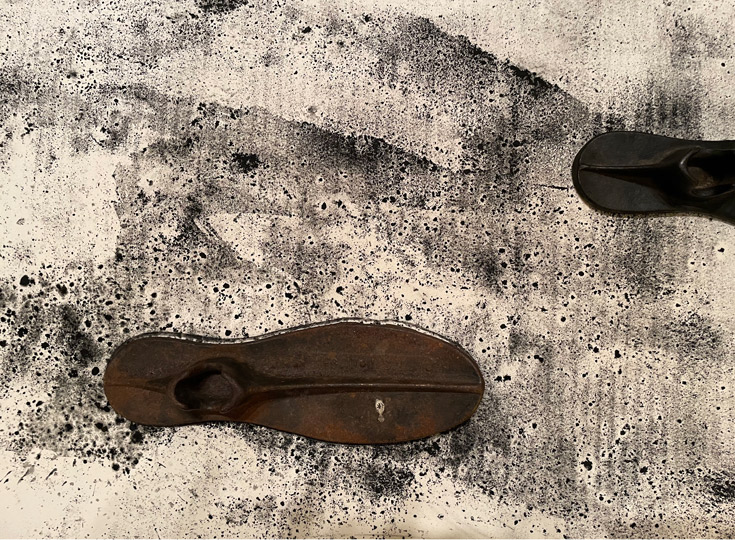
About the Exhibition
In “The Zionist Phantom,” Prof. Dana Arieli shapes a panoramic view of a landscape defined by the uneasy presence of its missing limbs. With dozens of photographs captured across Israel from the 1980s to the present, the exhibition presents abandoned and active spaces, unfinished buildings, military presence in civilian areas, sites of collective remembrance and personal loss, exhuming the past lives of the sites, of what will never return.
Upper image: Dana Arieli, "Quneitra, 2018"
Lower image: Adriana Katzew, "Caminaba y Caminaba..."
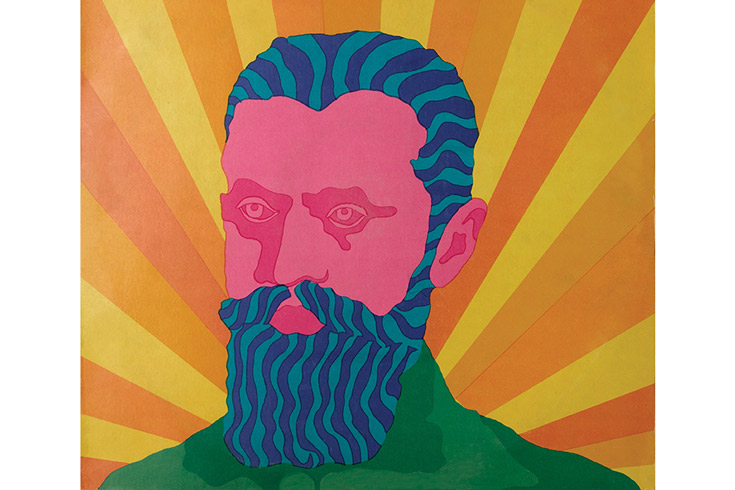
September 1, 2021
Film Premiere and Lecture by Herzl biographer, Prof. Derek Penslar
in commemoration of the 125th anniversary of Theodor Herzl’s "The Jewish State." Viewers around the world and on the Brandeis campus watched the premiere screening of "Herzlmania," a short film celebrating David Matlow's Theodor Herzl Memorabilia Collection, the world's largest private collection of Herzl artifacts. We then took a deeper look at the legacy of this pivotal figure in a lecture by Herzl’s biographer, Derek Penslar, the William Lee Frost Professor of Jewish History at Harvard University and author of "Theodor Herzl: The Charismatic Leader" (Yale University Press, 2020). Filmmaker Daniel Mooney directed "Herzlmania," and the film was commissioned by the Schusterman Center for Israel Studies at Brandeis University.
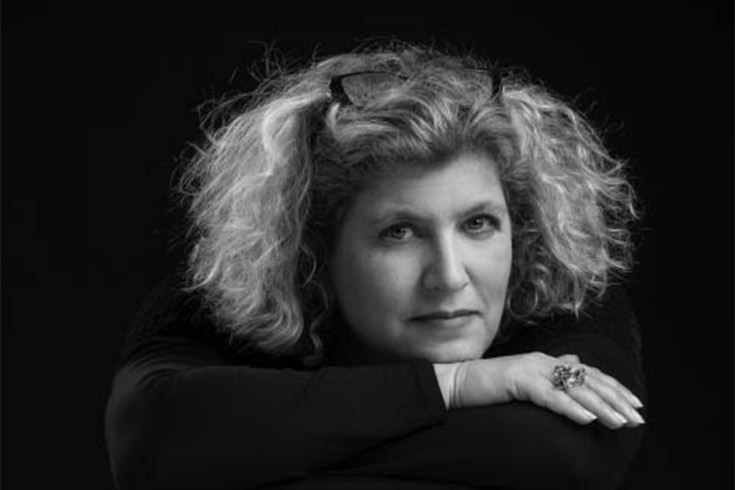
April 27, 2021
Guided by Professor Dana Arieli, participants were invited to select images from the project and to respond to them with their own texts, reflecting their impressions, emotions or memories. The written responses will be added to the exhibition webpage.

Dana Arieli, "Quneitra, 2018"
April 26, 2021
The Zionist Phantom
by Dana Arieli
A virtual exhibition presented by the Schusterman Center for Israel Studies at Brandeis University. Curated by Rotem Rozental.
The Israeli landscape is haunted by ghosts. Assembling what she refers to as “a worldview,” Dana Arieli shapes a panoramic view of a landscape defined by the uneasy presence of its missing limbs. The idea of the phantom reflects what should have been there. Going beyond a sense of longing, the phantom embodies a sensory experience: what the mind wants to see or hear, what it is convinced—even momentarily—is, in fact, there. And yet, we tend to discover, the sound or sight are a misunderstanding, an internal malfunction. More than conveying what was there, the phantom experience exhumes what will never return.
We are so excited to launch our very first virtual exhibition! Join us for a candid artist talk with Professor Dana Arieli, Design Faculty, Holon Institute of Technology and Mandel Center for Leadership in the Negev, and curator Dr. Rotem Rozental, Chief Curator and Senior Director of Arts and Culture at American Jewish University.
Cosponsored by the Schusterman Center for Israel Studies and the Consulate General of Israel to New England. Free and open to all. Registration required.
Part of the Leonard Bernstein Festival of the Creative Arts, April 25-May 1, 2021 at Brandeis University.
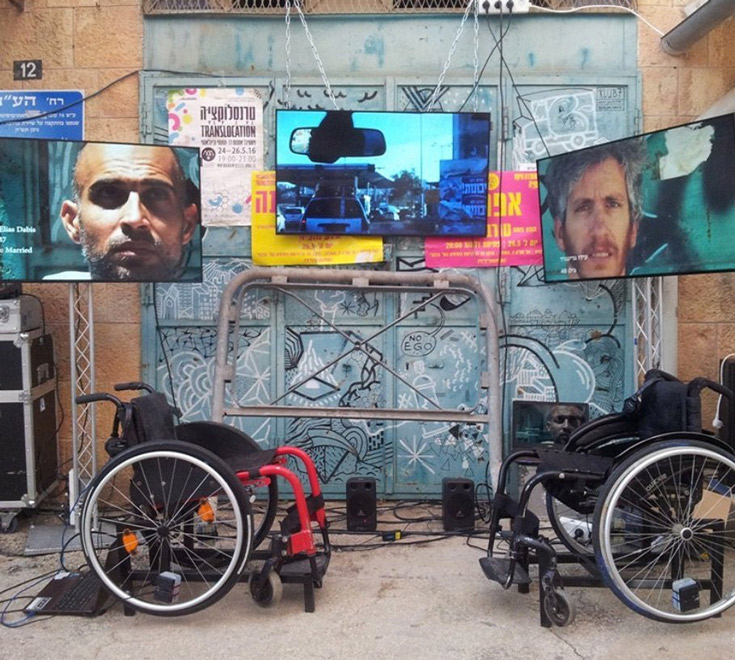
"Playback Paralysis" by Iddo Gruengard
April 22, 2021
Performing Disability in Israel
Session 2
Sunny Yudkoff is an assistant professor at The University of Wisconsin–Madison. She is the author of Tubercular Capital: Illness and the Conditions of Modern Jewish Writing, winner of the 2018 Salo Wittmayer Baron Book Prize (Stanford University Press, 2018).
This lecture was the last in a two-part series — held in conjunction with Professor Ilana Szobel’s course, Disability Cultures: Art, Film, and Literature of People with Disabilities — exploring real-life experiences and artistic performances of people living with disability in Israel. Artists, writers, and scholars will examine the intersection of disability with Zionist ideology, gender, race, and class. Our presenters, thus, examine the ways performance of disability on stage, on the screen, and in everyday life raises questions about Israeli subjectivity.
Presented by the Schusterman Center for Israel Studies at Brandeis University and cosponsored by the Hadassah-Brandeis Institute; the Department of Near Eastern and Judaic Studies; the Lurie Institute for Disability Policy; and the Program in Health: Science, Society, and Policy (HSSP), all housed at Brandeis University.
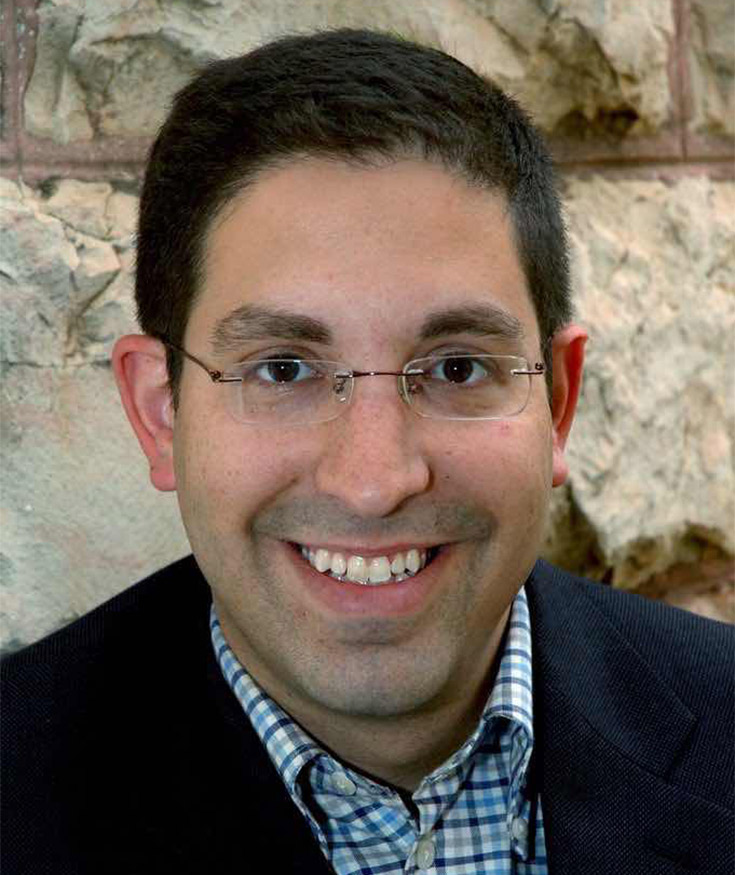
April 12, 2021
Presented by the Consulate General of Israel to New England and moderated by Brown University students, Ilana Emanuel and Ivy Scott, this is a rare opportunity for students across New England to learn directly about political journalism, international affairs, and Middle Eastern politics through the eyes of veteran reporter and chief political correspondent and analyst for the Jerusalem Post, Gil Hoffman.
Hoffman, a well-known Israeli journalist, is a routine political analyst for CNN, Al-Jazeera, and other significant news outlets. Known as "the most optimistic man in Israel," Hoffman is known for providing his readers a behind-the-scenes look into Israeli politics via his connections to Israeli and Palestinian figures from across the political spectrum. Leading media have interviewed Hoffman on six continents, and he has lectured about Israel in all 50 U.S. States.
This event is generously co-sponsored by 16 universities, university departments, and student organizations from across all New England States.
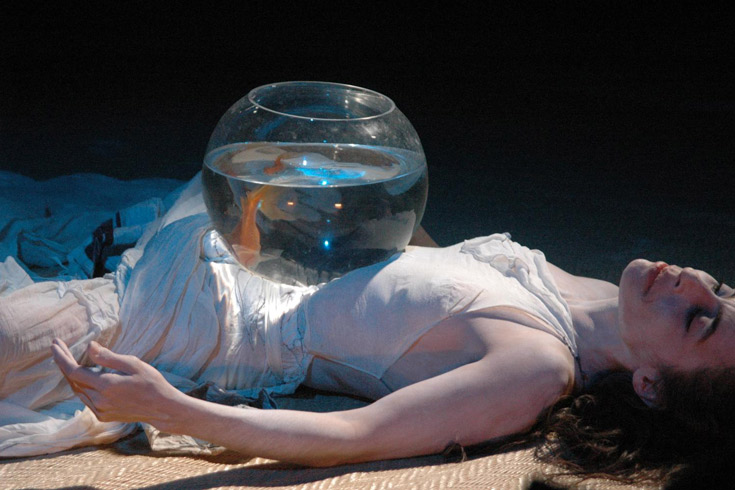
Photo Credit: Aviv Perez
April 8, 2021
From Within and Without
Tamar Borer has been creating and performing for over 20 years. Her background combines classical ballet technique, modern dance, dance traditions from various cultures, including Balinese and Mexican, and movement therapies and practices such as Feldenkrais.
A car accident in 1990 left Tamar paralyzed in both legs. She has continued to evolve her work since then, and has performed at many dance festivals across Israel and Europe. She was awarded the Buchman Hyman “Promising Artist Award,” and the distinguished Artist Award bestowed by the Ballet Master Albert Gaubier fund. She was also awarded the “Grace Award” (Hebrew – Ot Ha-Chesed) for her empowering and inspiring work with various physically and situationally challenged communities. Learn more about her unique choreography and artistic output.
Studio Israel is a new series, chaired by Caron Tabb, that gives an insider’s view of Israeli society through an array of contemporary creative female voices of diverse Israeli backgrounds. Each one-hour conversation features art and expertise that shed light on important social, cultural, and political issues in Israel today.
The series is a collaboration between the Hadassah-Brandeis Institute, Jewish Arts Collaborative, and the Schusterman Center for Israel Studies. It is made possible with generous support from CJP Arts & Culture.
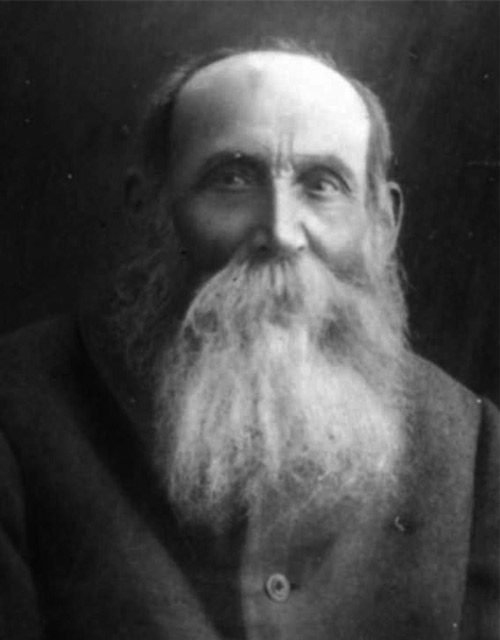
March 16, 2021
The Lives and Legacies of A.D. Gordon: A Retrospective
A Symposium Marking the 100th Year Since his Passing
Session 3
Watch the recording
Nearly a century since his passing, the life and work of Aharon David Gordon (1856-1922) have drawn renewed attention. One of the most original of Zionism's foundational thinkers, his ideas are strikingly relevant to contemporary questions, from ethics and nationalism, to the connectedness of environmentalism, community and social justice, to the possibility of vibrant Jewish culture beyond familiar dichotomies of secularity and religion.
The rare intellectual who lived out his ideas, Gordon moved in his mid-40s from Russia to Palestine, where by day he worked as an agricultural laborer, and by night wrote penetrating essays on the meaning of Jewish national - natural revival, and powerful, poetic correspondence with young activists, who later put his ideas into practice in the Kibbutz movement and Labor Zionism. Yet Gordon's significance looms much larger than his status as a revered icon of Labor Zionism. His writings and example still challenge assumptions about the meaning of Jewishness and the Land, on the possibility of living authentically in industrial society and invite readers to think about their lives as Jews and as human beings.
A flurry of new publications from manuscripts, scholarly studies, and renewed popular interest in Gordon among social activists and artists, point to the vitality of his thought, as a point of entry into Zionist history, and a means of exploring Jewish cultural and social renaissance today. This major figure is little-known in the English-speaking world. This symposium will open a window to the man, his times and legacies, and hopefully open participants' horizons too.
Organized by the Schusterman Center for Israel Studies in cooperation with the Tauber Institute for the Study of European Jewry.
Third and final session of the symposium
Discussants:
Ruth Calderon, Co-founder, Elul; Former Member of Knesset; Educator; and Talmud Scholar
Ron Margolin, Professor of Modern Jewish Thought, Department of Jewish Philosophy and Comparative Religion, Tel Aviv University; Research Fellow of the Kogod Research Center, Shalom Hartman Institute
Shay Rabineau, Shay Rabineau, Assistant Professor of Israel Studies, Binghamton University
Moderator: Yehudah Mirsky, Professor of Near Eastern and Judaic Studies, Schusterman Center for Israel Studies, Brandeis University
Previous events in the symposium took place March 2 and 9.

"Playback Paralysis" by Iddo Gruengard
March 11, 2021
Session 1
Gili Hammer is an assistant professor in the Department of Sociology and Anthropology and the Program in Cultural Studies at the Hebrew University of Jerusalem. She is the author of "Blindness through the Looking Glass: The Performance of Blindness, Gender, and the Sensory Body" (University of Michigan Press, 2019).
This lecture was the first in a two-part series — held in conjunction with Professor Ilana Szobel’s course, Disability Cultures: Art, Film, and Literature of People with Disabilities — exploring real-life experiences and artistic performances of people living with disability in Israel. Artists, writers, and scholars will examine the intersection of disability with Zionist ideology, gender, race, and class. Our presenters, thus, examine the ways performance of disability on stage, on the screen, and in everyday life raises questions about Israeli subjectivity.
Presented by the Schusterman Center for Israel Studies at Brandeis University and cosponsored by the Hadassah-Brandeis Institute; the Department of Near Eastern and Judaic Studies; the Lurie Institute for Disability Policy; and the Program in Health: Science, Society, and Policy (HSSP), all housed at Brandeis University.

March 9, 2021
The Lives and Legacies of A.D. Gordon: A Retrospective
A Symposium Marking the 100th Year Since his Passing
Session 2
Watch the Recording
Nearly a century since his passing, the life and work of Aharon David Gordon (1856-1922) have drawn renewed attention. One of the most original of Zionism's foundational thinkers, his ideas are strikingly relevant to contemporary questions, from ethics and nationalism, to the connectedness of environmentalism, community and social justice, to the possibility of vibrant Jewish culture beyond familiar dichotomies of secularity and religion.
The rare intellectual who lived out his ideas, Gordon moved in his mid-40s from Russia to Palestine, where by day he worked as an agricultural laborer, and by night wrote penetrating essays on the meaning of Jewish national - natural revival, and powerful, poetic correspondence with young activists, who later put his ideas into practice in the Kibbutz movement and Labor Zionism. Yet Gordon's significance looms much larger than his status as a revered icon of Labor Zionism. His writings and example still challenge assumptions about the meaning of Jewishness and the Land, on the possibility of living authentically in industrial society and invite readers to think about their lives as Jews and as human beings.
A flurry of new publications from manuscripts, scholarly studies, and renewed popular interest in Gordon among social activists and artists, point to the vitality of his thought, as a point of entry into Zionist history, and a means of exploring Jewish cultural and social renaissance today. This major figure is little-known in the English-speaking world. This symposium will open a window to the man, his times and legacies, and hopefully open participants' horizons too.
Organized by the Schusterman Center for Israel Studies in cooperation with the Tauber Institute for the Study of European Jewry.
Second session of the symposium
Discussants:
Lilach Rosenberg-Friedman, Associate Professor and Chair of the Land of Israel Studies and Archaeology Department, Bar-Ilan University, Israel
Yossi Turner, Professor of Jewish Thought at the Schechter Institute for Jewish Studies in Jerusalem; Author of "Quest for Life: A Study in Aharon David Gordon's Philosophy" (Academic Studies Press, 2020)
Yair Bar Tzuri, Doctoral student in Near Eastern and Judaic Studies and Schusterman Scholar at the Schusterman Center for Israel Studies, Brandeis University
Moderator: Shayna Weiss, Associate Director of the Schusterman Center for Israel Studies at Brandeis University
The final event in the symposium takes place March 16.

March 2, 2021
The Lives and Legacies of A.D. Gordon: A Retrospective
A Symposium Marking the 100th Year Since his Passing
Session 1
Watch the recording
Nearly a century since his passing, the life and work of Aharon David Gordon (1856-1922) have drawn renewed attention. One of the most original of Zionism's foundational thinkers, his ideas are strikingly relevant to contemporary questions, from ethics and nationalism, to the connectedness of environmentalism, community and social justice, to the possibility of vibrant Jewish culture beyond familiar dichotomies of secularity and religion.
The rare intellectual who lived out his ideas, Gordon moved in his mid-40s from Russia to Palestine, where by day he worked as an agricultural laborer, and by night wrote penetrating essays on the meaning of Jewish national - natural revival, and powerful, poetic correspondence with young activists, who later put his ideas into practice in the Kibbutz movement and Labor Zionism. Yet Gordon's significance looms much larger than his status as a revered icon of Labor Zionism. His writings and example still challenge assumptions about the meaning of Jewishness and the Land, on the possibility of living authentically in industrial society and invite readers to think about their lives as Jews and as human beings.
A flurry of new publications from manuscripts, scholarly studies, and renewed popular interest in Gordon among social activists and artists, point to the vitality of his thought, as a point of entry into Zionist history, and a means of exploring Jewish cultural and social renaissance today. This major figure is little-known in the English-speaking world. This symposium will open a window to the man, his times and legacies, and hopefully open participants' horizons too.
Organized by the Schusterman Center for Israel Studies in cooperation with the Tauber Institute for the Study of European Jewry.
First session of the symposium
Discussants:
Ari Ackerman, Golinkin Professor of TALI Jewish Education, The Schechter Institute of Jewish Studies
Yehudah Mirsky, Professor of Near Eastern and Judaic Studies, Schusterman Center for Israel Studies, Brandeis University
Einat Ramon, Senior Lecturer in Jewish Thought and Jewish Women’s Studies; Founding Director of the Marpeh pastoral care program, Schechter Institute of Jewish Studies
Eugene Sheppard, Department Chair of Near Eastern & Judaic Studies; Associate Professor of Modern Jewish History and Thought; and Associate Director, Tauber Institute for the Study of European Jewry, at Brandeis University
Moderator: Alexander Kaye, Karl, Harry, and Helen Stoll Chair of Israel Studies and Assistant Professor in the Department of Near Eastern and Judaic Studies at Brandeis University
The next events in the symposium take place March 9 and March 16.
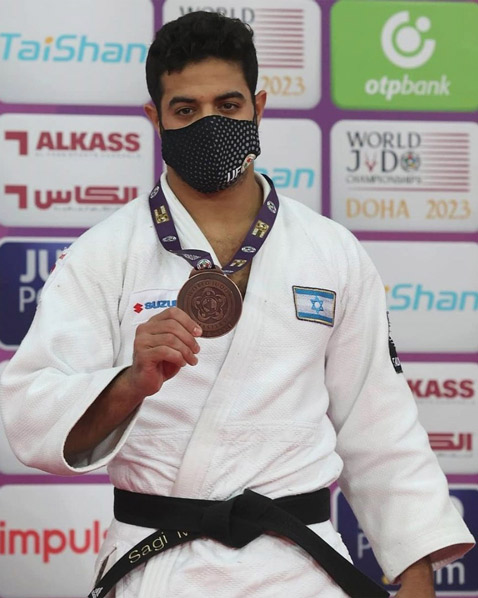
February 28, 2021
A conversation with Sagi Muki, the Israeli Judo World champion.
Muki was born and raised in Netanya, Israel and served in the Israel Defense Forces as a Sergeant at the Sde Dov airbase. A few of his achievements include placing first in the 2019 World Championships Senior in Tokyo, first in the 2015 and 2018 European Senior Championships, first in the 2019 Grand Prix in Tel Aviv, third in the Masters Tournament in Qatar in 2021, and fifth at the 2016 Olympic Games in Rio De Janeiro. In 2018, Muki placed first in the Abu Dhabi Grand Slam, which was the first time an Israeli competitor competed under the Israeli flag and not under the International Judo Association flag. The competition marked a major milestone when the Israeli national anthem, Hatikvah, played in the Gulf State.
In 2019, Sagi was ranked world number one judoka (judo expert). He has won the European championships, and he will represent his country at the Tokyo Olympics. But this Israeli hero is also a strong advocate for peace and equality between all nations. After an Iranian competitor had to forfeit a match due to the Iranian Regime, Sagi reached out to him, and they have since become friends. Sagi believes that sports can be a powerful bridge between peoples, culture, and beliefs. These days, Sagi is getting ready for the Tokyo 2021 Olympics.
Cosponsored by the Consulate General of Israel to New England, BIPAC, Brandeis Hillel, the Brandeis Department of Athletics, Physical Education, and Recreation, and the Schusterman Center for Israel Studies at Brandeis University.
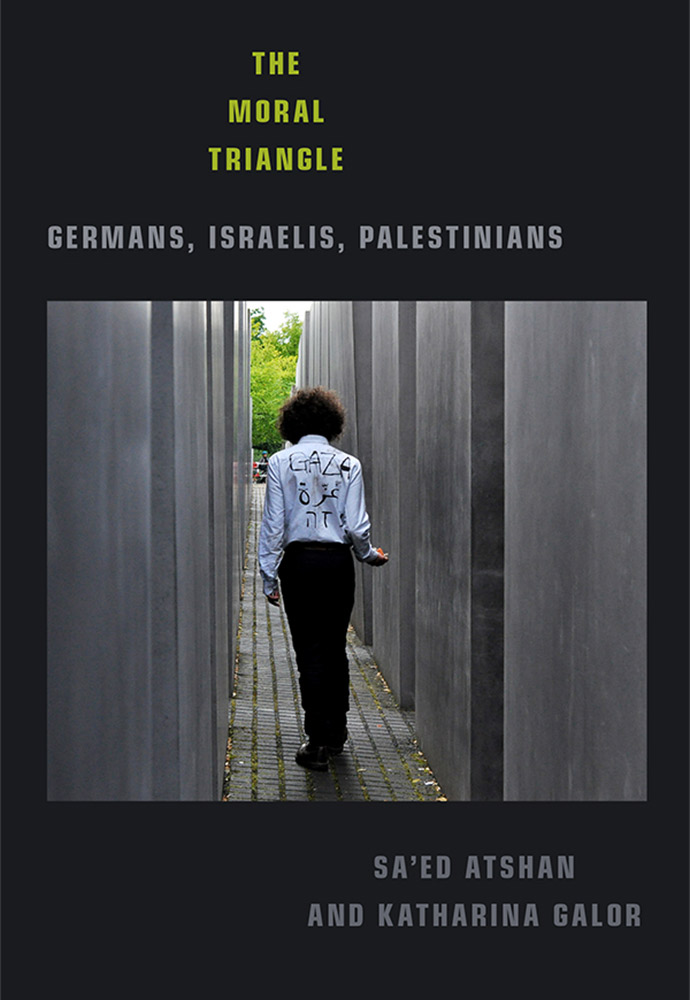
February 24, 2021
The authors of "The Moral Triangle: Germans, Israelis, Palestinians," Sa’ed Atshan and Katharina Galor helped us examine issues of diaspora, conflict, immigration with an illuminating discussion.
We are happy to offer a 30% discount for the book! Please use code E20MORAL and the following link: https://www.dukeupress.edu/
Moderated by Dr. Sabine von Mering, Director of the Center for German and European Studies and Professor of German and Women's, Gender and Sexuality Studies, at Brandeis University
Dr. Sa’ed Atshan is an Assistant Professor of Peace and Conflict Studies at Swarthmore College. He is spending the 2020-2021 academic year as a Visiting Professor of Anthropology and Visiting Scholar in Middle Eastern Studies at the University of California, Berkeley. He received a PhD in Anthropology and Middle Eastern Studies from Harvard University.
Dr. Katharina Galor is the Hirschfeld Associate Professor in Judaic Studies and Urban Studies at Brown University. She specializes in the visual and material culture of Israel/Palestine. Her publications include The Archaeology of Jerusalem: From the Origins through the Ottomans (Yale University Press, 2013; co-authored with Hanswulf Bloedhorn) and Finding Jerusalem: Archaeology between Science and Ideology (University of California Press, 2017).
Cosponsored by the Center for German and European Studies.
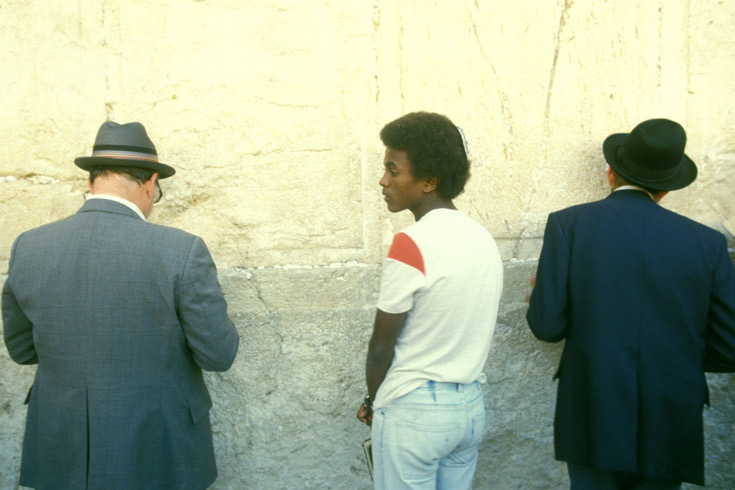
Photo Credit: Courtesy of the National Library of Israel
February 16, 2021
We examined the changing meanings of Blackness in Israel, Africa and the USA. Among the questions considered are:
- What are the meanings of "Blackness" in Israel? How are they in conversation with the way the concept plays out in America, Africa, and Europe?
- What role has the idea of "Blackness" played in the formation of the identities of Israel's different communities - Mizrachim, Ashkenazim, Ethiopian, Palestinian? How has it been used in movements for social justice in Israel?
- How does this help us have constructive conversations around questions of race, ethnicity, religion, and nationality in Israel and in the USA?
Discussants:
- Dr. Yuval Evri is a Leverhulme Early Career Fellow at Kings College London. His research focuses on the cultural and political history of Palestine/Land of Israel, concentrating on Sephardi and Arab-Jewish thought. His recent book "The Return to Al-Andalus: Disputes Over Sephardic Culture and Identity Between Arabic and Hebrew" was published by Magnes press in 2020.
- Dr. Shula Mola is an educational content developer, workshop leader, and researcher focusing on civics, tolerance, inequality, and multiculturalism. She is the founding member of “Mothers on Guard,” an NGO dedicated to reducing police brutality against Ethiopian Israeli youth. She is also a former chairperson of the Association of Ethiopian Jews, Jerusalem, Israel.
- Dr. Bryan K. Roby is Assistant Professor of Judaic and Middle Eastern Studies at the University of Michigan – Ann Arbor. His expertise is on Middle Eastern and North African Jewish history in the modern era. His research interests include the intersections of race, gender, and sexuality in Israel/Palestine; 19th and 20th century North African history; and the legacy of French colonialism on Arab and Jewish identity. His first book, "The Mizrahi Era of Rebellion: Israel’s Forgotten Civil Rights Struggle 1948-1966" (Syracuse University Press, 2015), provides an extensive history of social justice protests by Middle Eastern Jews in Israel.
Moderator:
- Dr. Alexander Kaye is the Karl, Harry, and Helen Stoll Chair of Israel Studies and Assistant Professor in the Department of Near Eastern and Judaic Studies at Brandeis University. An expert in Israel Studies, his research in the history of Israel focuses on the relationship between law, religion and politics, and in particular in the history of religious Zionism.
Cosponsored by the Department of Near Eastern and Judaic Studies, the School of Arts and Sciences Co-Curricular Fund and the Schusterman Center for Israel Studies, at Brandeis University.
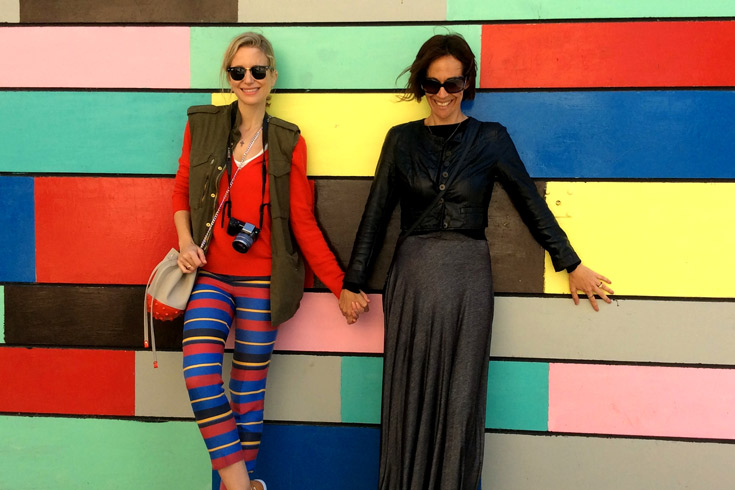
February 11, 2021
Israeli tastemaker, entrepreneur and curator Galit Reismann of TLVstyle combines her passion for fashion with her deep connection to Tel Aviv. Using PechaKucha, a storytelling format that shows 20 images with 20 seconds of commentary each, Reismann and selected designers tell the multicultural story that is contemporary Israel through fashion and design. The work of Elisha Abargel, Akal, Orna Barkan Liftz, Tamar Branitzk, and Hana Menkes ranges from clothes to accessories to tallitot. Introductory remarks by Dr. Shayna Weiss, associate director of the Schusterman Center for Israel Studies.
Studio Israel is a series, chaired by Caron Tabb, that gives an insider’s view of Israeli society through an array of contemporary creative female voices of diverse Israeli backgrounds. Each one-hour conversation features art and expertise that shed light on important social, cultural, and political issues in Israel today.
The series is a collaboration between the Hadassah-Brandeis Institute, Jewish Arts Collaborative, and the Schusterman Center for Israel Studies. It is made possible with generous support from CJP Arts & Culture.
Questions? Email Amy Powell.
The next and final event in the series will take place 9:00 - 10:00 AM EDT on Thursday, April 8, 2021
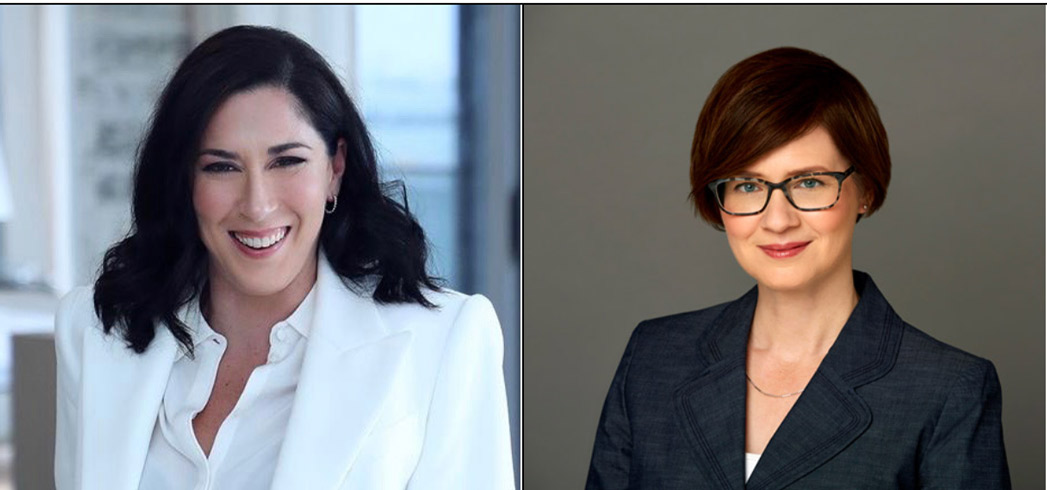
February 4, 2021
Presented by the Hadassah-Brandeis Institute Project on Latin American Jewish & Gender Studies (LAJGS)
Join LAJGS in conversation with Leah Soibel, Fuente Latina founder and CEO, and Susanne Althoff, journalist and author of Launching While Female (2020).
The event will address the entrepreneurial and journalistic aspect of Fuente Latina’s mission to bring Israeli news coverage to a global Hispanic audience, exploring Leah Soibel’s role as a Latina entrepreneur and the organization's women's centered journalism programs.
Co-sponsored by: Brandeis International Business School (Asper Center, Latin American Initiative, Israel Initiative), Brandeis Journalism Program, Schusterman Center for Israel Studies at Brandeis University
Moderated by Dalia Wassner, Ph.D. Director, HBI Project in Latin American Jewish & Gender Studies
Panelists:
-
Leah Soibel, founder and CEO of Fuente Latina, is a Hispanic American and Israeli who has more than a decade of experience on the ground in Israel, the U.S, Latin America and Spain working with Spanish-language journalists and opinion leaders from around the world.
-
Susanne Althoff, Assistant Professor at Emerson College and past editor-in-chief of Boston Globe Magazine, is author of Launching While Female: Smashing the System that Holds Women Entrepreneurs Back (Beacon Press, 2020).
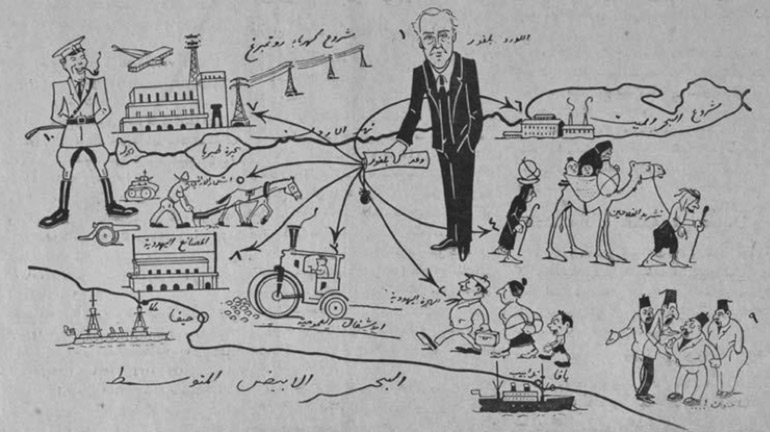
February 3, 2021
A Crown Seminar with Fredrik Meiton
Political power and electrical power have something in common. They must both move through physical materials whose properties govern their flow. At the dawn of the Arab-Israeli conflict, both kinds of power were circulated through the electric grid that was built by the Zionist engineer Pinhas Rutenberg in the period of British rule, from 1917 to 1948. In this talk, Fredrik Meiton will chart a story of rapid and uneven development that was greatly influenced by the electric grid and set the stage for the conflict between Arabs and Jews. The grid shaped relations among the Zionists, Palestinians, and British rulers—and anticipated the outcome of Jewish statehood and Palestinian statelessness in 1948—by imposing a logic that has continued to shape the area and the conflict until today.
Fredrik Meiton is an assistant professor of history at the University of New Hampshire.
Ekin Kurtic, discussant, is a junior research fellow at the Crown Center.
Presented by the Crown Center for Middle East Studies and co-sponsored by the Islamic and Middle Eastern Studies program, Schusterman Center for Israel Studies, and Department of History, at Brandeis University.
Image: Illustration of Rutenberg’s hydropower station from the Palestinian newspaper Falastin, published on November 2, 1932 - the fifteenth anniversary of the Balfour Declaration.

January 27, 2021
A virtual tour of the newly revitalized Historical Jewish Press. This web resource is a rich repository of digitized newspapers at the National Library of Israel in a wide variety of languages (Hebrew, Yiddish, Arabic, French, Spanish, English and more), including many Palestinian newspapers from the first half of the 20th century. These records shed light on modern Jewry in its Middle Eastern and global contexts, providing rich resources for educators and scholars alike. Our guide for the hour was Eyal Miller, the site's project and technology manager.
Jointly sponsored by Brandeis Library and the Schusterman Center for Israel Studies.
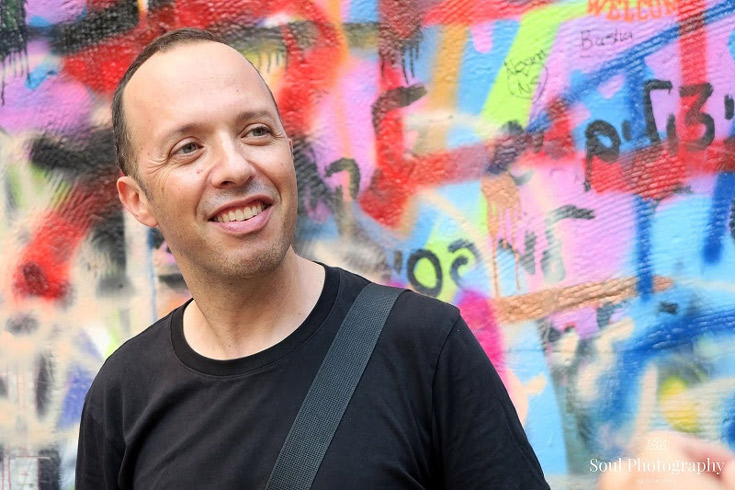
Photo Credit: Aline Frisch
January 21, 2021
Through texts found in their natural habitat, in the streets of Tel Aviv, we'll decipher textual graffiti, lost pet ads and stickers. We'll talk about the influence of other languages on Modern Hebrew and celebrate the different cultural and linguistic layers of Israeli society. We'll also talk about words like "haverimot", about gender and inclusive language.
Speaker:
Guy Sharett teaches Hebrew in the Shanghai International Studies University in Shanghai, China. He has a B.A in Linguistics of Hebrew Language from the Hebrew University in Jerusalem and an M.A from the University of London. Sharett, who was born in Ashdod, Israel, speaks seven languages, and is the presenter of the Streetwise Hebrew podcast, where he teaches Hebrew using music and pop culture, talking about slang, intonation, grammar and identity.
Moderator:
Shayna Weiss is the associate director of the Schusterman Center for Israel Studies at Brandeis University. Previously, Dr. Weiss was the inaugural Distinguished Visiting Scholar in Israel Studies at the United States Naval Academy. After completing a PhD from New York University in Hebrew and Judaic Studies, she completed postdoctoral fellowships in Israel at Bar Ilan University and Tel Aviv University. She is interested in study of Haredi Jewry, and the politics of popular culture in Israel.
This event was part of the How to Revive a Dead Language in 100 years series organized by the Consulate General of Israel to New England, and co-hosted by Brandeis University's Hebrew Program, The Schusterman Center for Israel Studies at Brandeis University, The Jewish Studies Program at Colby College, Middlebury Language Schools, Hebrew College, and Northeastern University Hillel.

December 10, 2020
Join us and Vered Nissim, in conversation with Dr. Sivan Rajuan Shtang, in the second Studio Israel: Conversation Series.
Vered Nissim is an Israeli based visual artist, mostly focused on photography and video installations. The home and family sphere is her primary source material, showing an insider point of view on immigration, social mobility, and capitalist myths, in particular ones that relate to the perception of femininity.
Dr. Sivan Rajuan Shtang is a visual culture scholar interested in the various modes of intersection between the axis of race, class, gender, and sexuality in Israeli and Zionist art and visual culture.
A pilot partnership between the Schusterman Center, Hadassah-Brandeis Institute, and the Jewish Arts Collaborative, and chaired by artist Caron Tabb, this group will bring together leaders across artforms and backgrounds to understand how Israeli art represents the swath of cultural opportunities and challenges that face Israel currently. With a focus on female artists of diverse Israeli backgrounds, we’ll dive deep into what Israel is today.
Series made possible with generous support from CJP Arts & Culture.
The next events in the series will take place 9:00 - 10:00 AM EST:
- Thursday, February 11, 2021
- Thursday, April 8, 2021
Questions? Email Amy Powell.
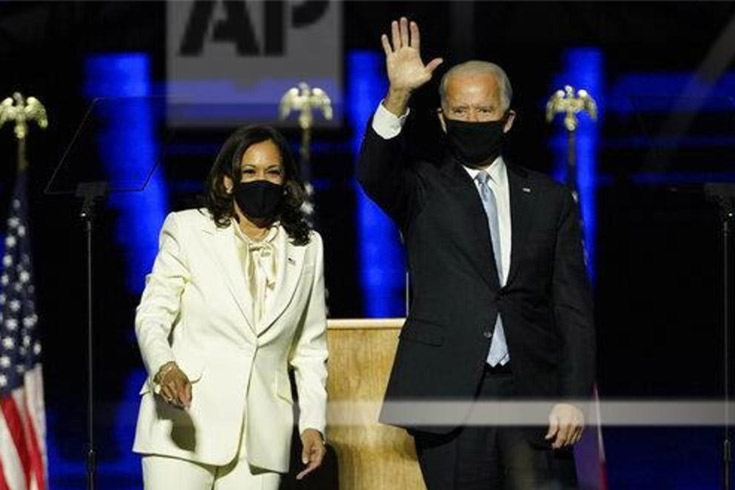
Photo Credit: AP Photo/Andrew Harnik, Pool
November 17, 2020
Hosted by the Office of the President at Brandeis University. A panel discussion and Q&A on the implications of the U.S. presidential election for the Middle East. The panelists will examine the Biden administration's options for addressing crucial challenges and opportunities in the region, including U.S. relations with Israel, Iran, Saudi Arabia, Turkey, and other countries.
Panelists:
- Eva Bellin, Myra and Robert Kraft Professor of Arab Politics at the Crown Center for Middle East Studies, Brandeis University
- Ebtesam Al-Ketbi, Founder and President of the Emirates Policy Center in the UAE
- Yehudah Mirsky, Professor of Near Eastern and Judaic Studies, Schusterman Center for Israel Studies, Brandeis University
- Michael Singh, Lane-Swig Senior Fellow and Managing Director, The Washington Institute for Near East Policy
- Tamara Cofman Wittes, Senior Fellow, Center for Middle East Policy, The Brookings Institution
Moderated by:
Gary Samore, Crown Family Director of the Crown Center and Professor of the Practice in the Department of Politics, Brandeis University
Q&A moderated by:
Alexander Kaye, Karl, Harry, and Helen Stoll Chair of Israel Studies and Assistant Professor, Department of Near Eastern and Judaic Studies, Brandeis University
Cosponsored by the Crown Center for Middle East Studies, Brandeis University, and the Schusterman Center for Israel Studies, Brandeis University.
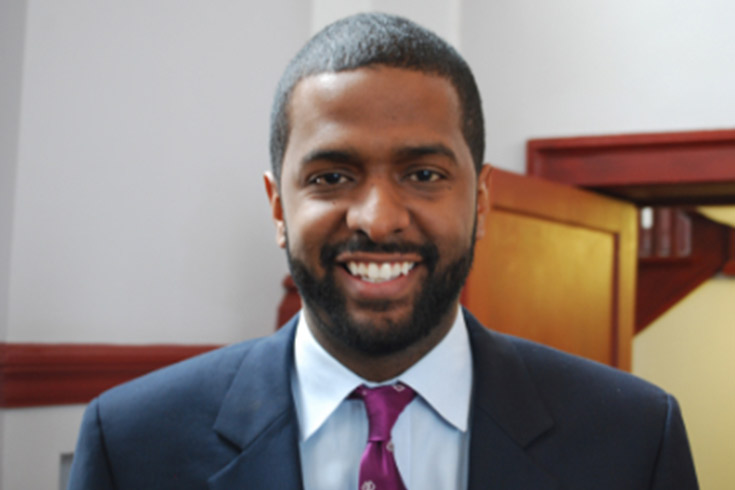
November 15, 2020
Online Event
Presented by the Brandeis Israel Public Affairs Committee (BIPAC), Israel Summit at Harvard, Pro-Israel Cadre at Clark University, and Huskies for Israel, as part of the Boston-Wide Israel Speaker Series.
Bakari Sellers made history in 2006 when, at just 22 years old, he defeated a 26-year incumbent State Representative to become the youngest member of the South Carolina state legislature and the youngest African American elected official in the nation. In 2014 Sellers won the Democratic nomination for Lt. Governor and is widely considered to be a rising star within the Democratic Party and leading voice for his generation.
In addition to his impressive list of early accomplishments, Sellers served on President Barack Obama’s South Carolina steering committee during the 2008 election. That coupled with his uncommon ability to reach across the aisle and get things done has led to numerous accolades including being named to TIME Magazine’s 40 Under 40 in 2010 as well as 2014’s “The Root 100” list of the nation’s most influential African-Americans. Sellers has been a much sought after public speaker and has provided political and social commentary and analysis on many major national news outlets.
This event is co-sponsored by Brandeis Hillel, Brandeis Politics Department, The Schusterman Center for Israel Studies, and Israel Campus Roundtable.
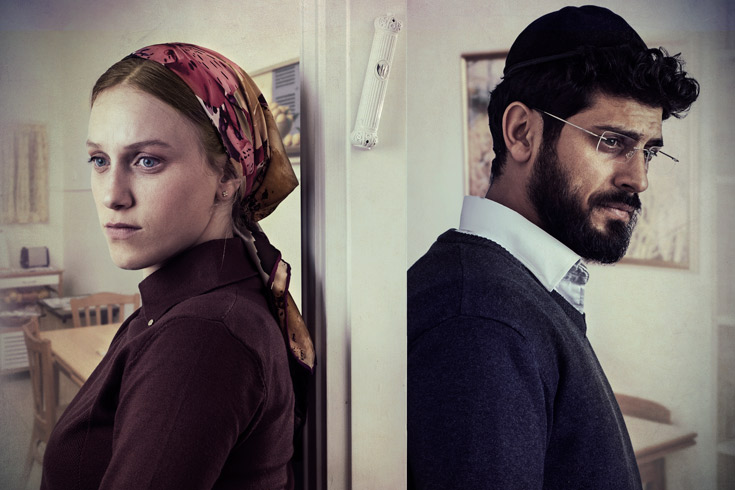
November 15, 2020
TLV TV Israeli TV Binge: Unchained
Season 1 (Episodes 1–12), Hebrew with subtitles
Massachusetts Premiere
In this 2019 Israeli TV Series, Rabbi Yossef Mourad works for Israel’s rabbinical courts, tracking down husbands who refuse to give their wives a gett, the document required to grant women Jewish divorces. But when Yossef uncovers a secret which threatens to dissolve his own marriage to Hana, his world begins to crumble. Read more and watch the trailer. The series was introduced by Dr. Shayna Weiss, Associate Director of the Schusterman Center for Israel Studies at Brandeis University.
Unchained: Live Q&A
On Zoom
A conversation with creator/director Tamar Kay, lead actress Avigayil Koevary, and Dr. Lisa Fishbayn Joffe, Shulamit Reinharz Director of the Hadassah-Brandeis Institute, moderated by Boston Jewish Film Artistic Director Ariana Cohen-Halberstam.
Sponsored by the Boston Jewish Film Festival, the Hadassah-Brandeis Institute, and the Schusterman Center for Israel Studies with cosponsorships from the following Brandeis University partners: Brandeis Alumni Association, Hebrew Language and Literature Program, Hillel, and the Department of Near Eastern and Judaic Studies.
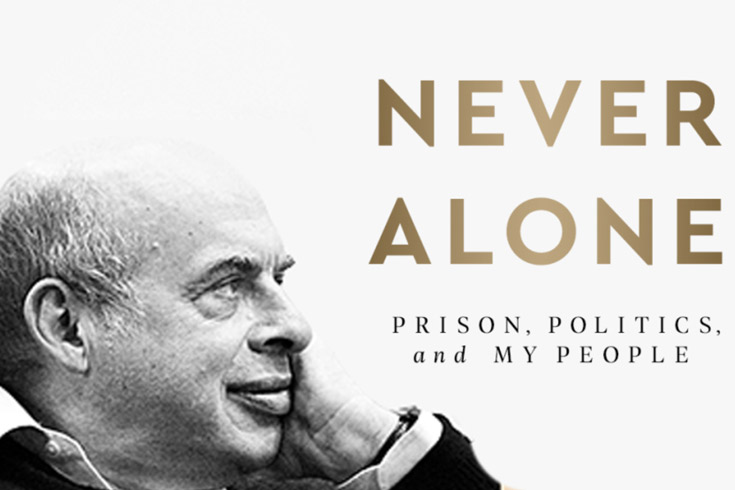
November 9, 2020
Co-hosted by the Office of the President
Natan Sharansky, hero of the Soviet Jewry movement and former chair of Israel's Jewish Agency, along with his "Never Alone: Prison, Politics, and My People" co-author, historian Gil Troy, discussed Israel's relationship with American Jewry, antisemitism on college campuses, the failed compromise aimed at opening the Western Wall for non-Orthodox prayer services and more -- in conversation with Schusterman Center director, Jonathan D. Sarna, and Director of the Hornstein Program, Dr. Shirley Idelson.
Natan Sharansky is one of the most famous former Soviet refusniks and an Israeli politician, author and human rights activist. Read more.
Gil Troy is a Distinguished Scholar in North American History at McGill University, currently living in Jerusalem, and an award-winning American presidential historian and a leading Zionist activist. Read more.
Jonathan D. Sarna is University Professor, Joseph H. & Belle R. Braun Professor of American Jewish History and director of the Schusterman Center for Israel Studies at Brandeis University
Shirley Idelson is Leon A. Jick Director of, and associate professor in the Hornstein Jewish Professional Leadership Program at Brandeis University
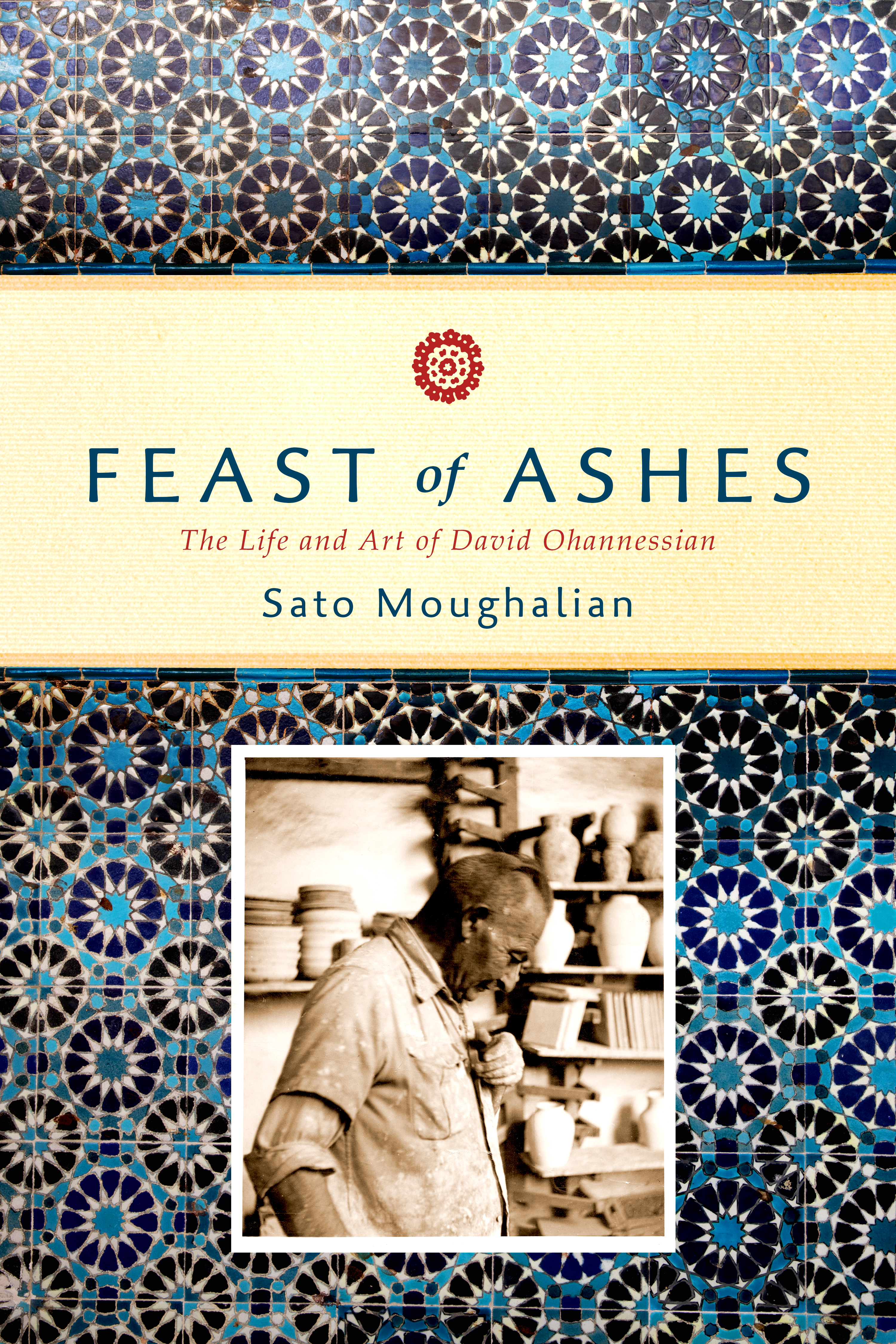
October 28, 2020
Illustrated lecture with Sato Moughalian, author of "Feast of Ashes - The Life and Art of David Ohannessian."
Joining for Q&A: Marc Mamigonian, Director of Academic Affairs, National Association for Armenian Studies and Research (NAASR).
Ms. Moughalian detailed the lineage of her grandfather David Ohannessian's ceramic tradition, reconstructing her grandfather's history and legacy in Armenian pottery. She spoke about the process of coming to terms with her family’s past, the ways in which that served as an impetus to excavate and reconstruct her grandfather’s history through archival research, and the importance of preserving the stories of peoples displaced through migration.
Since 2007, Ms. Moughalian has traveled to Turkey, England, Israel, Palestine, and France to uncover her grandfather’s traces and has published articles and given talks on the genesis of Jerusalem's Armenian ceramic art. In 2019, Stanford University Press published her biography of her grandfather, Feast of Ashes: The Life and Art of David Ohannessian, which was longlisted for the PEN/America Literary Awards Jacqueline Bograd Weld Award for Biography, and a finalist for the American Association of Publishers PROSE Award for Biography & Autobiography. She is currently at work on a second book.
Sato Moughalian is an award-winning flutist in New York City, who, until the pandemic struck, toured widely on five continents as a chamber musician, served as principal flute for Gotham Chamber Opera, American Modern Ensemble and a number of other NY groups. She is flutist and Artistic Director of Perspectives Ensemble, founded at Columbia University in 1993. Moughalian’s professional activities as a flutist and her intense, life-long interest in the visual arts, material culture, and writing, are increasingly intersecting.
Cosponsored with the National Association for Armenian Studies and Research (NAASR)
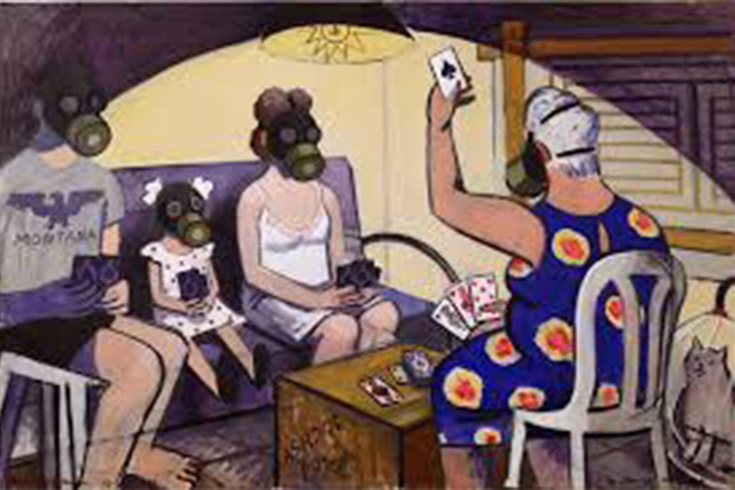
October 15, 2020
We are proud to kick off the series with Israeli art curator, critic, and writer Dr. Smadar Sheffi, who gave a brief overview of contemporary Israeli art to set the stage for this series.
A pilot partnership between the Schusterman Center, Hadassah-Brandeis Institute, and the Jewish Arts Collaborative, and chaired by artist Caron Tabb, this group will bring together leaders across artforms and backgrounds to understand how Israeli art represents the swath of cultural opportunities and challenges that face Israel currently. With a focus on female artists of diverse Israeli backgrounds, we’ll dive deep into what Israel is today.
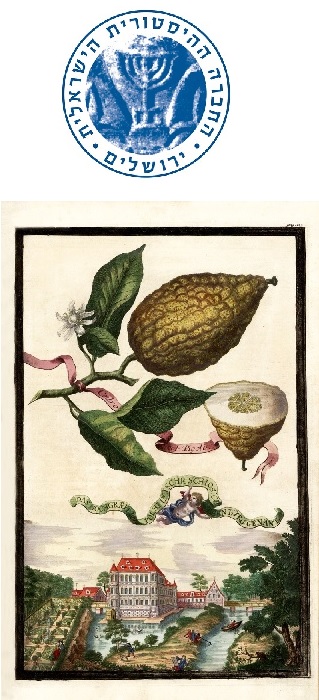
September 30, 2020
The speakers discussed what the etrog, or citron, can reveal to us about larger historical trends.
Welcome words by:
- Jonathan D. Sarna, University Professor, Joseph H. & Belle R. Braun Professor of American Jewish History; Director, Schusterman Center for Israel Studies, Brandeis University
- Shmuel Feiner, Professor of Modern Jewish History, Bar-Ilan University; Chairman of The Historical Society of Israel
Introduction and moderation by:
- Joshua Teplitsky, Associate Professor of History, Stony Brook University
Speakers:
- Debra Kaplan, Associate Professor, Department of Jewish History and Director of the Halpern Center for the Study of Jewish Self-Perception, Bar-Ilan University
- Alexander Kaye, Karl, Harry, and Helen Stoll Assistant Professor of Israel Studies, Department of Near Eastern and Judaic Studies, Brandeis University
- Zev Eleff, Associate Professor of Jewish History, Touro College
Commentator:
- Christine Hayes, Robert F. and Patricia Ross Weis Professor of Religious Studies in Classical Judaica, Yale University
In partnership with the Historical Society of Israel and The International Association of Historical Societies for the Study of Jewish History.
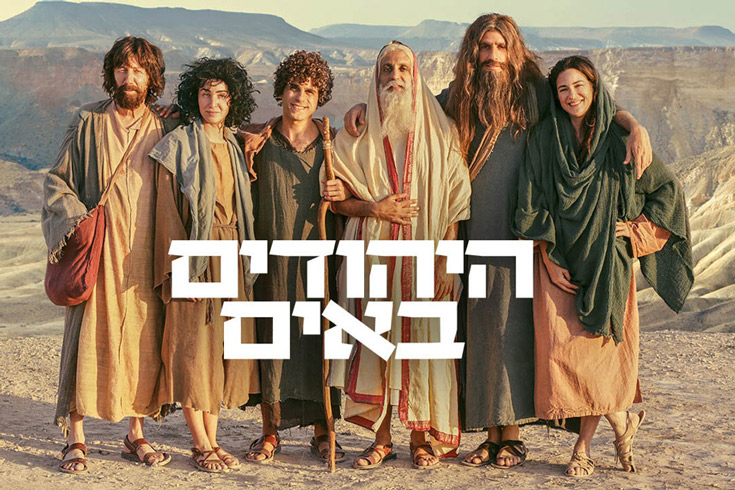
September 14, 2020
FALL KICKOFF EVENT
The Jews are Coming (Ha-Yehudim Baim) is an Israeli Academy Award-winning satire now in its fourth season, airing on Kan 11, one of the official channels of the Israeli Public Broadcasting Corporation. The sketch comedy covers the history of the Jewish people from biblical times to the present, from Moses to Barbie and everything in between. Join our associate director Dr. Shayna Weiss for a lively conversation with the show's creators, Natalie Marcus and Asaf Beiser. The conversation featured clips from the new season, never before translated for an English speaking audience!
Speakers:
- Asaf Beiser:
Based in Tel Aviv, Asaf Beiser has been a writer and showrunner in Israel’s highest rated, comedy, satire and drama shows for over 15 years. He is the co-creator and head writer of the award-winning sketch show The Jews are Coming. Asaf was a writer for Fauda, The Good Cop, Eretz Nehederet (The Israeli version of Saturday Night Live), and many more award winning programs for Israeli television. - Natalie Marcus
Natalie Marcus is a highly acclaimed, award-winning, screenwriter and director based in Tel Aviv. For the past 10 years, Marcus has been a writer and showrunner in Israel’s highest rated, comedy, satire, and drama series. Marcus is the creator and showrunner of the acclaimed historically themed sketch show The Jews are Coming. Marcus teaches comedy writing and lectures about writing and Jewish history all around the world, and lives in Tel Aviv with her husband and two kids.
- Shayna Weiss, Associate Director, Schusterman Center for Israel Studies, Brandeis University
Q&A Moderator:
- Alexander Kaye, Karl, Harry, and Helen Stoll Assistant Professor of Israel Studies, Department of Near Eastern and Judaic Studies, Brandeis University